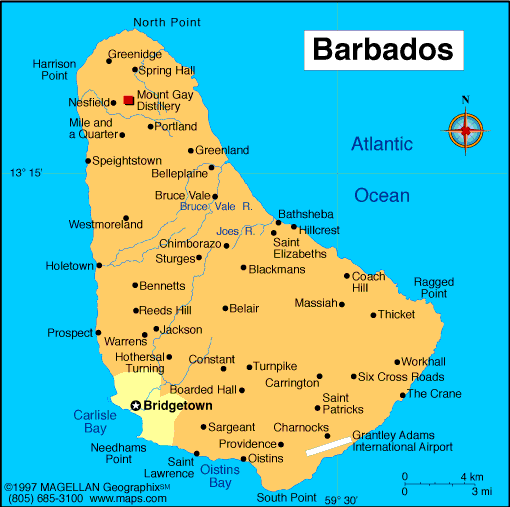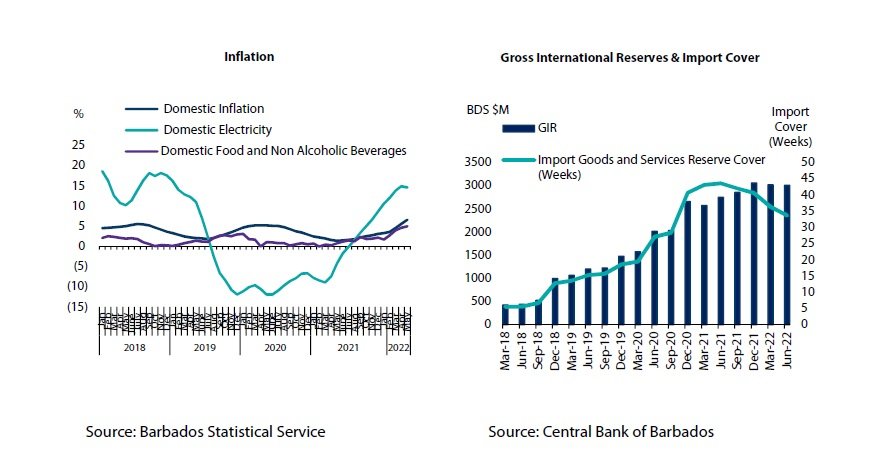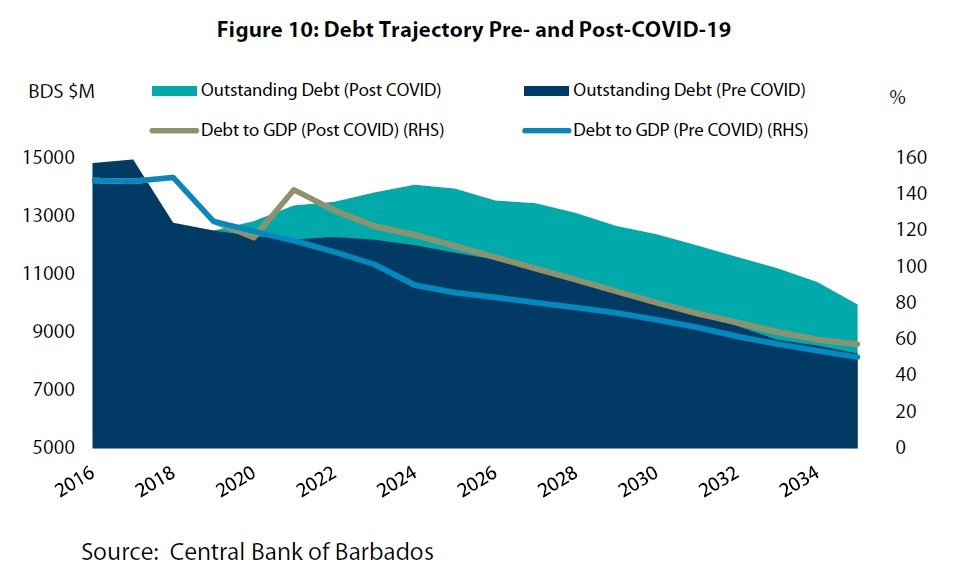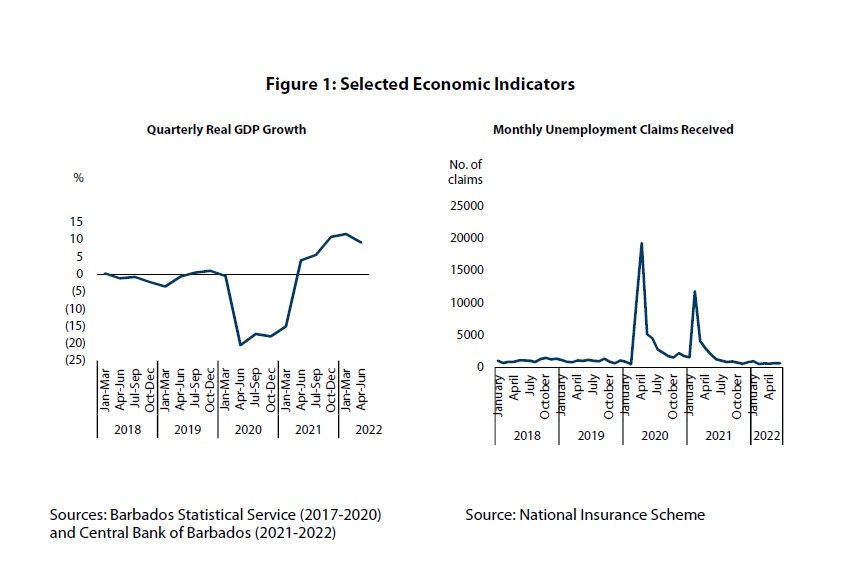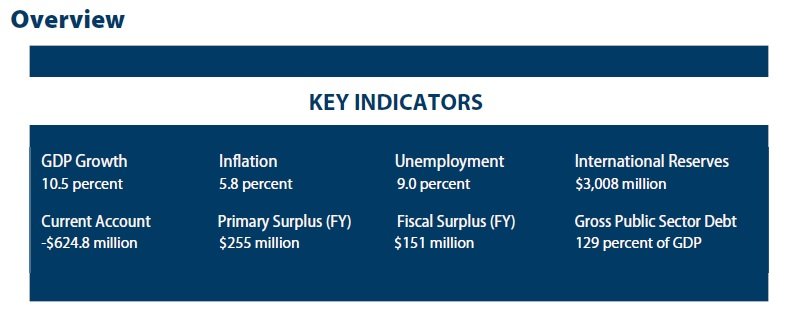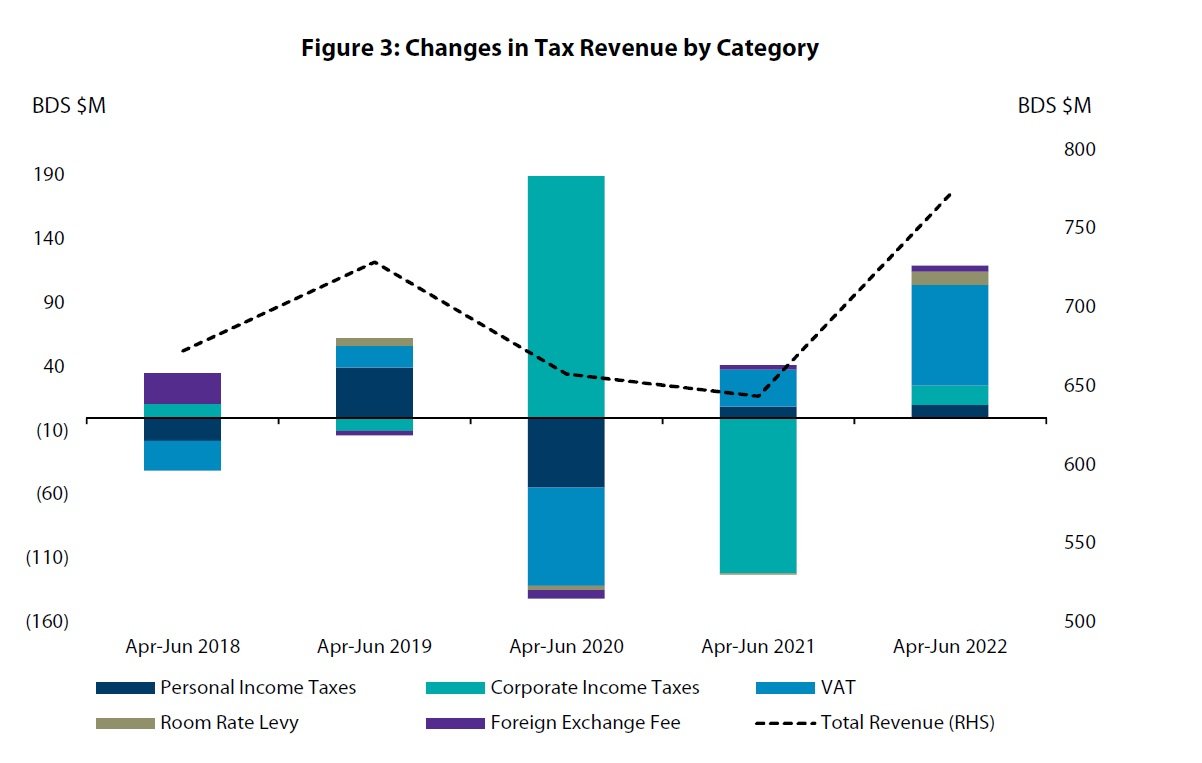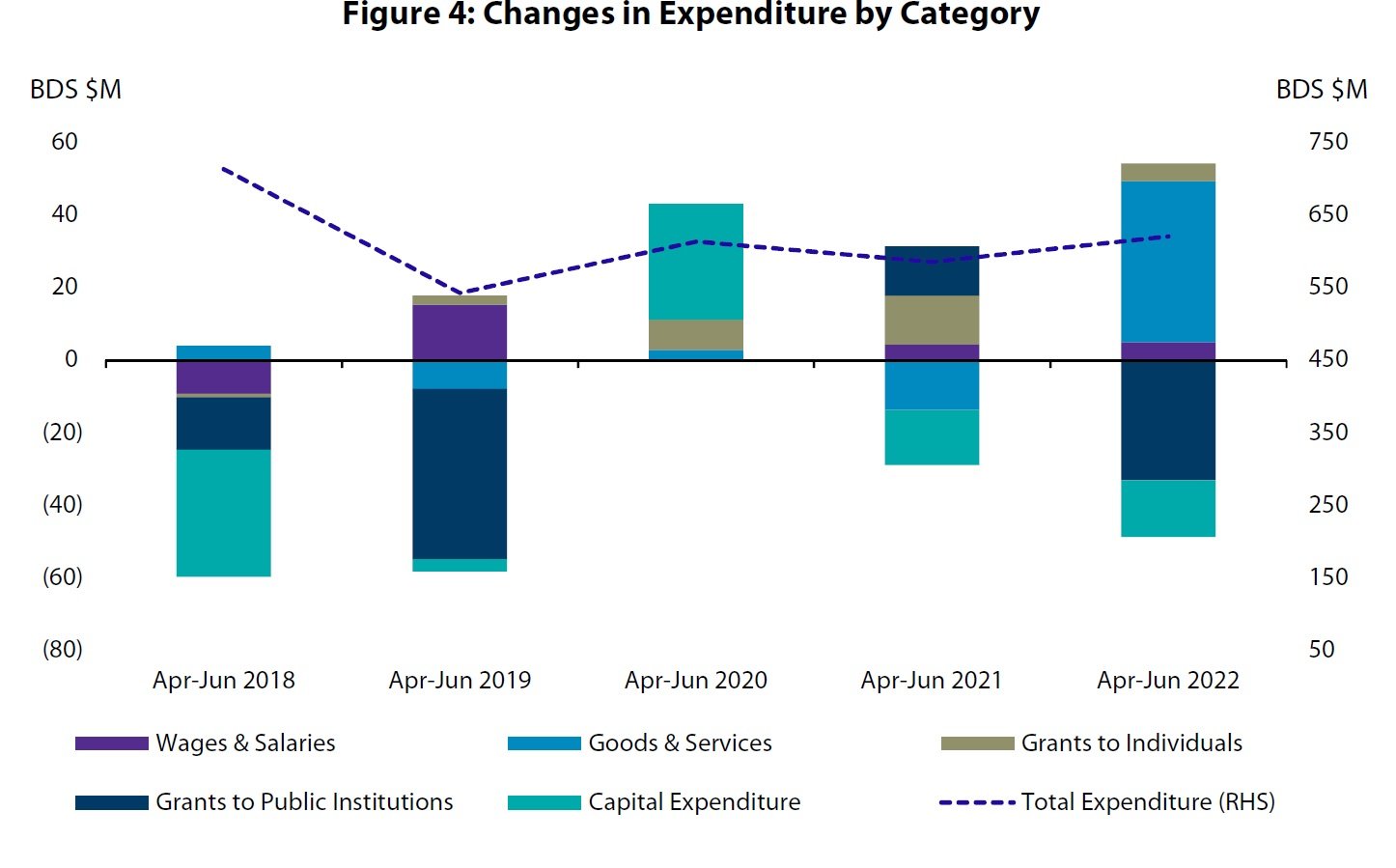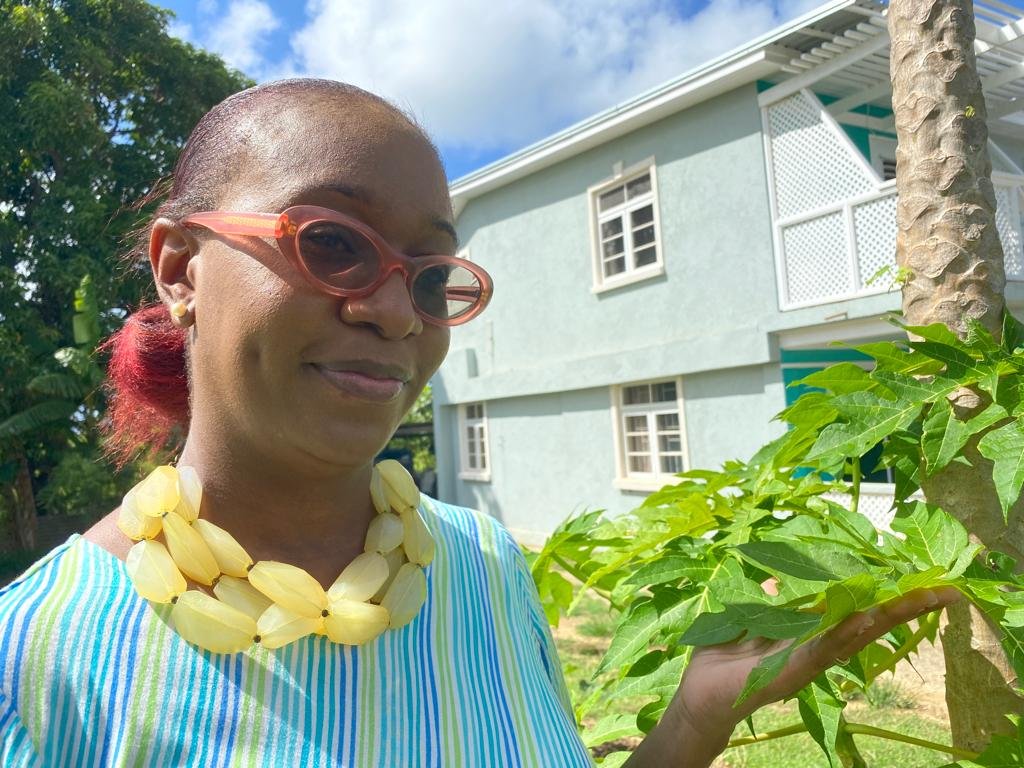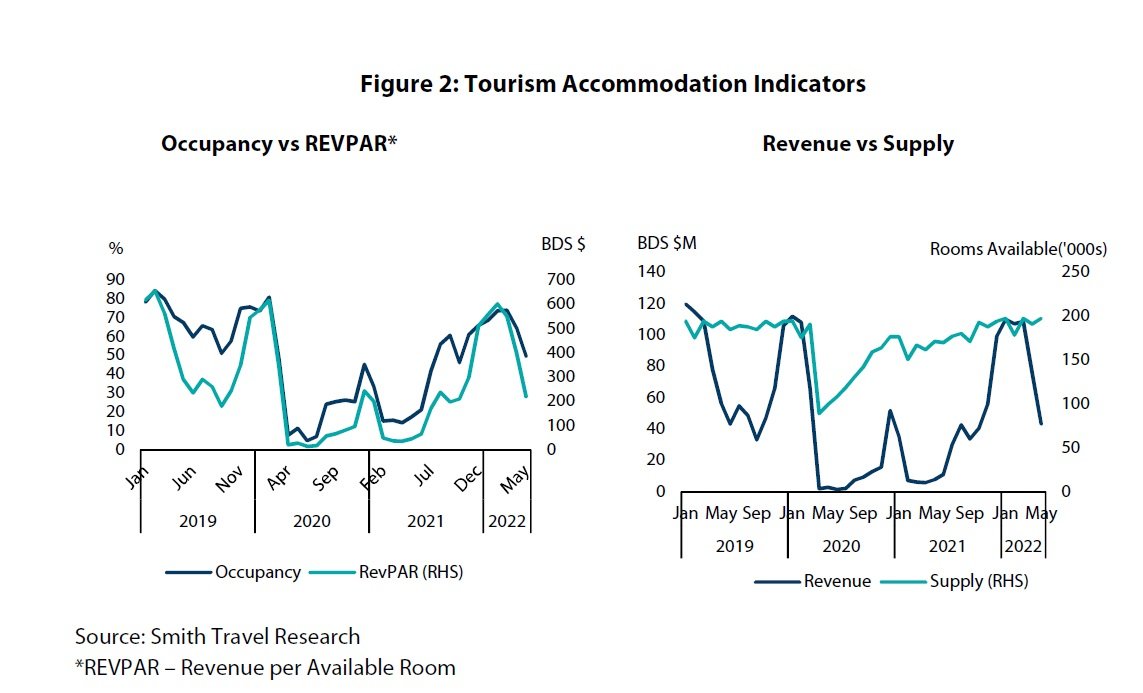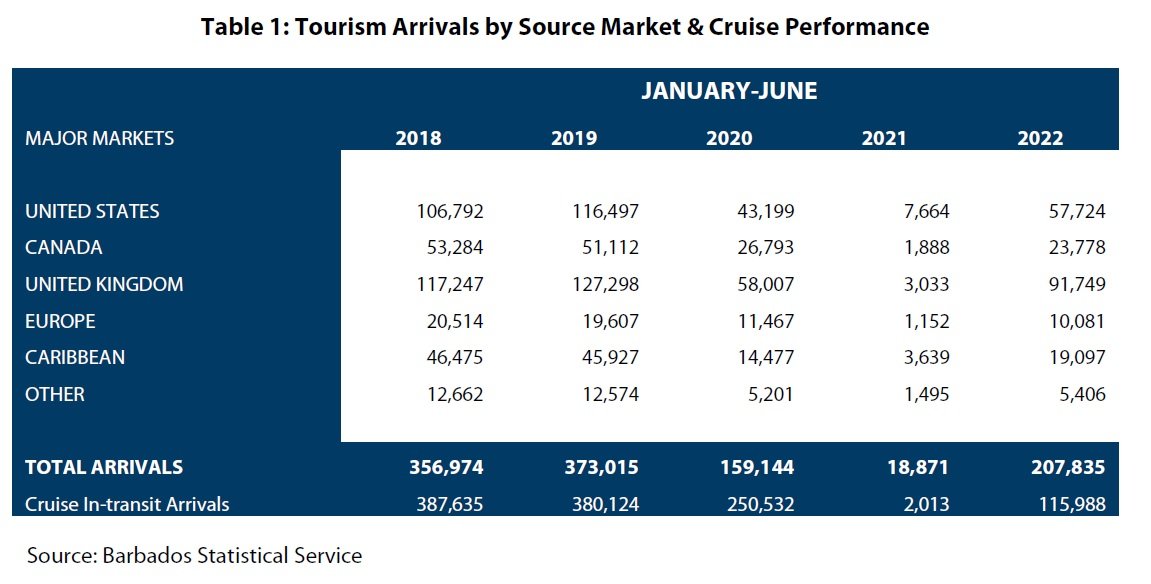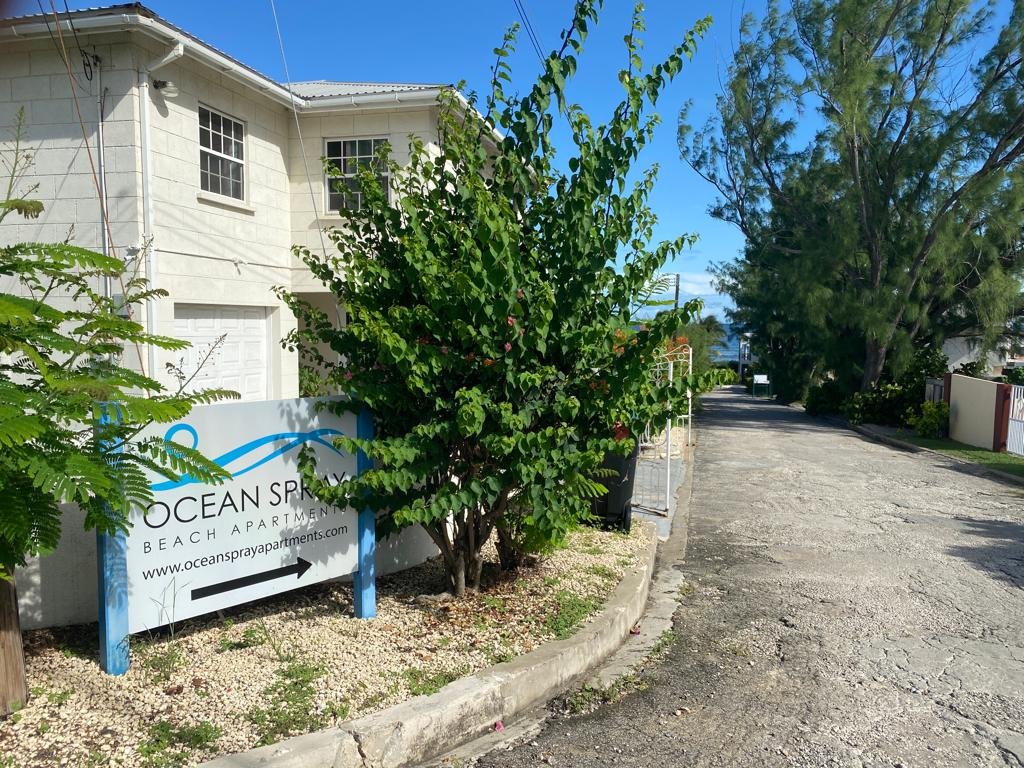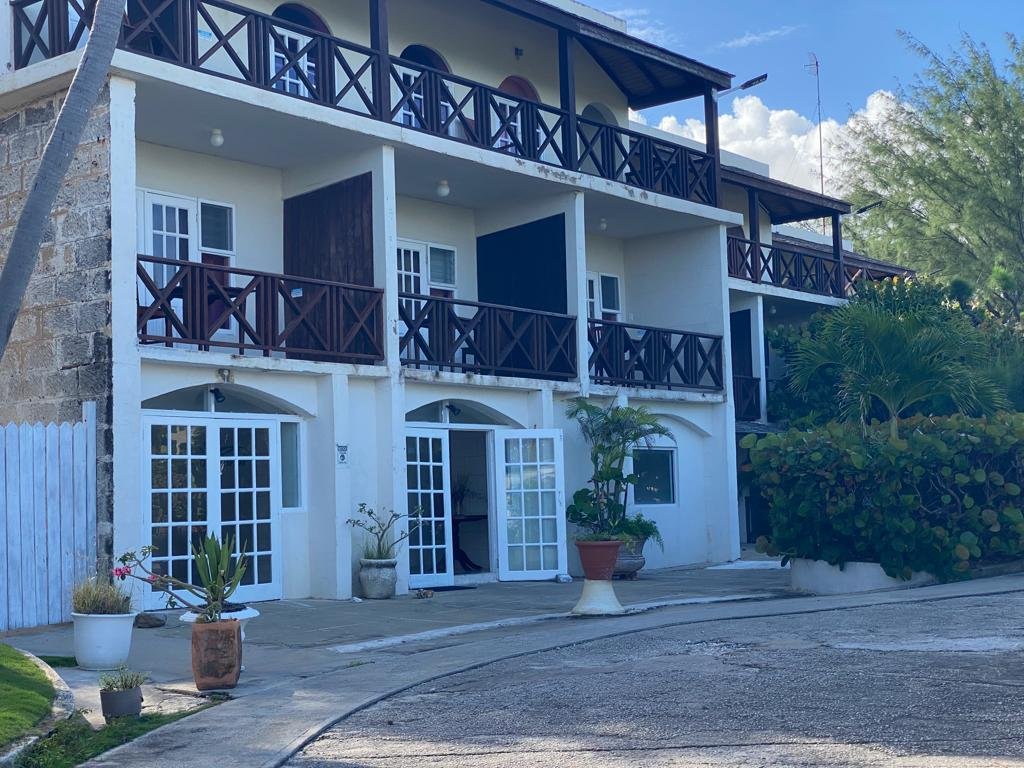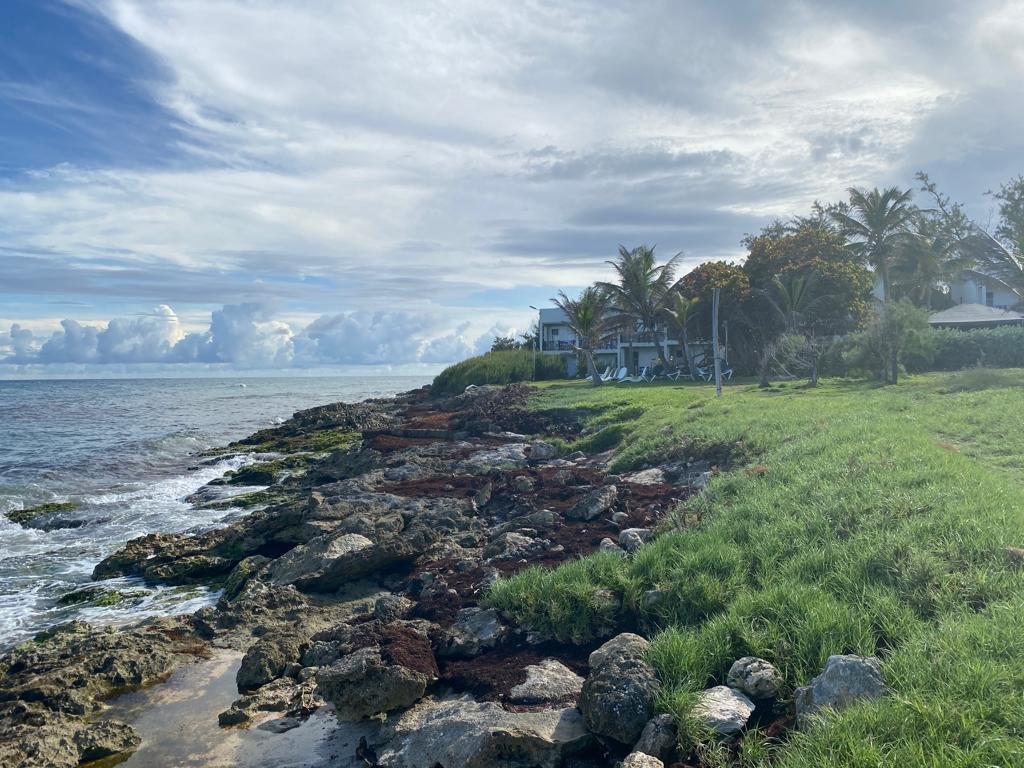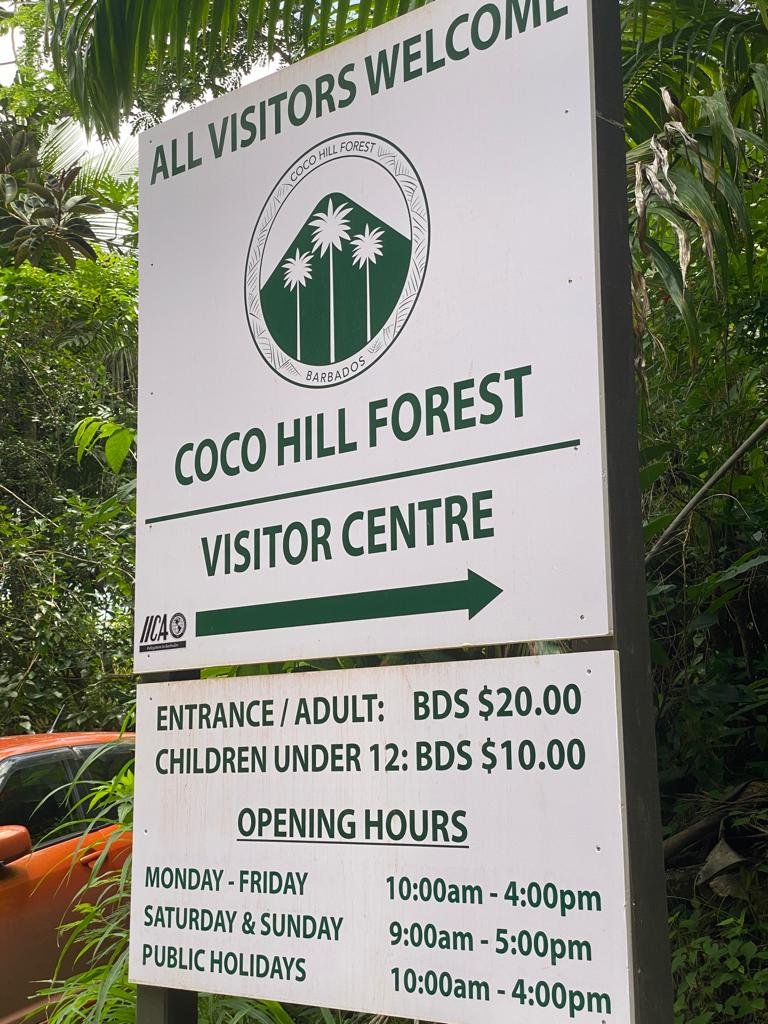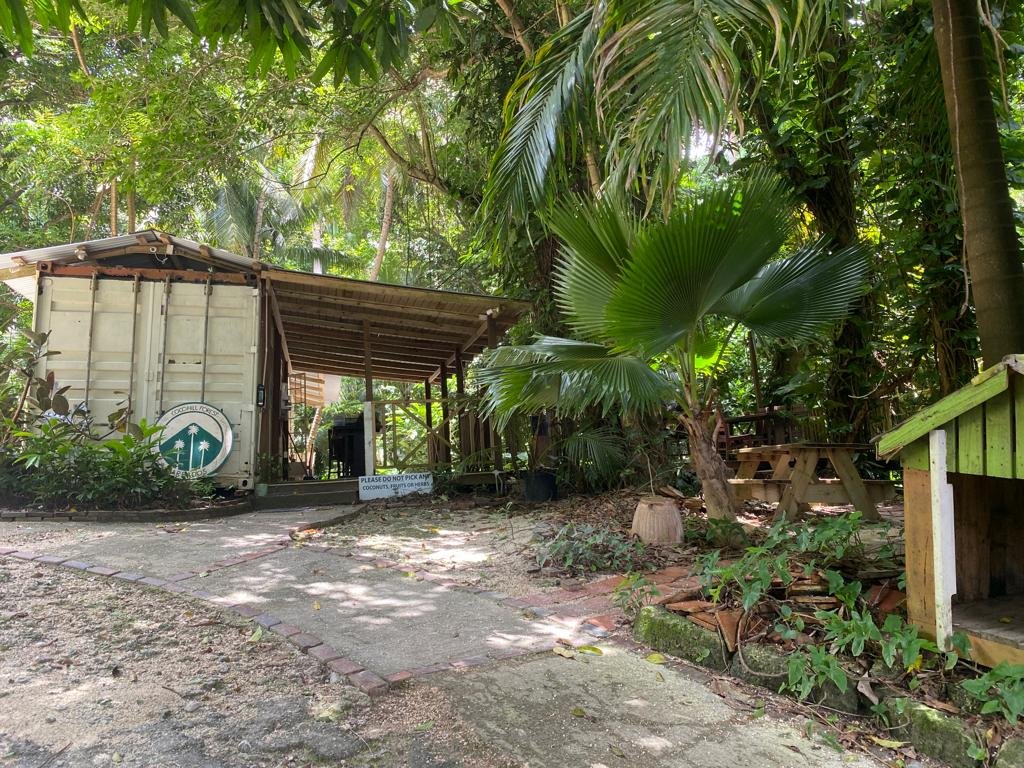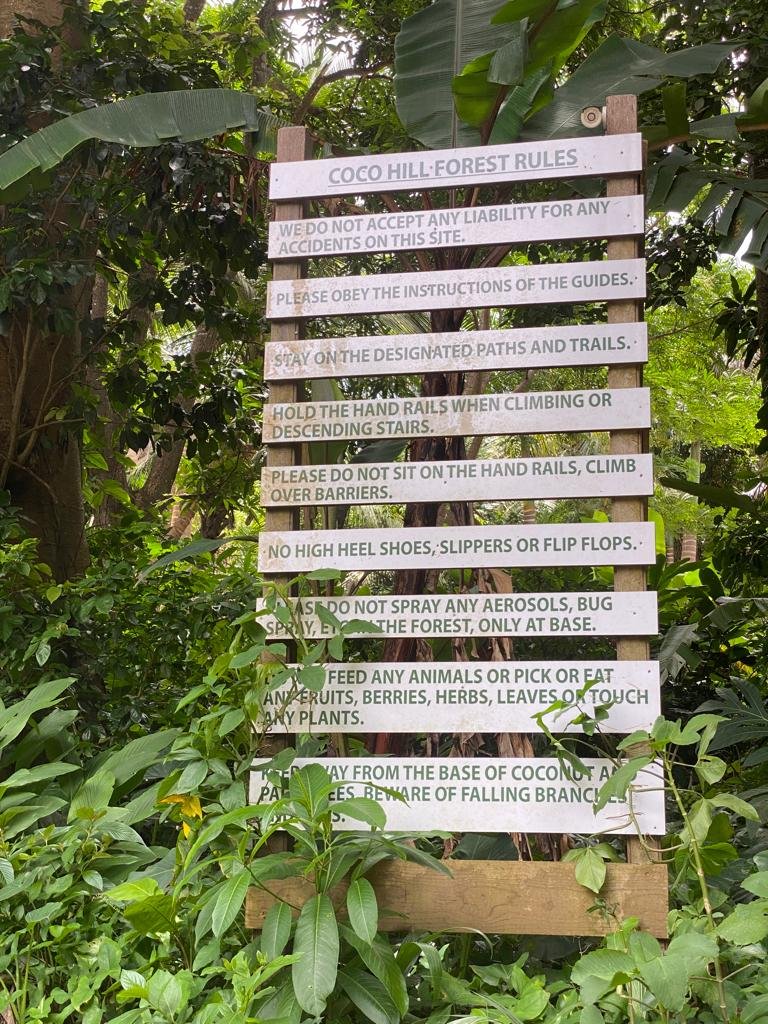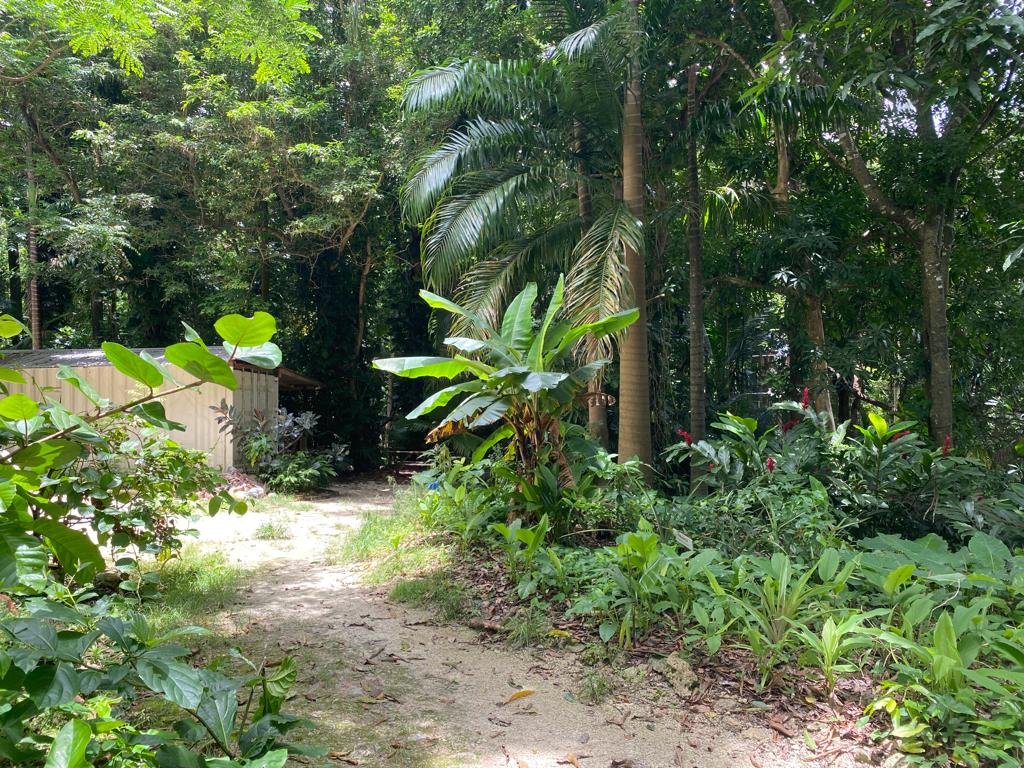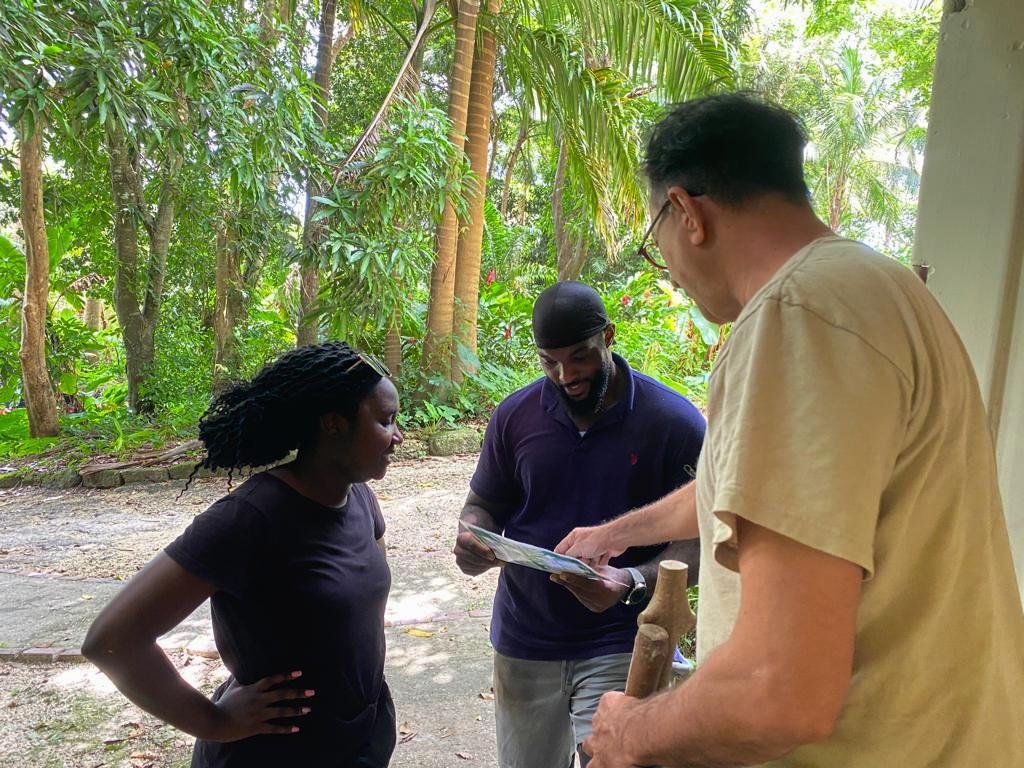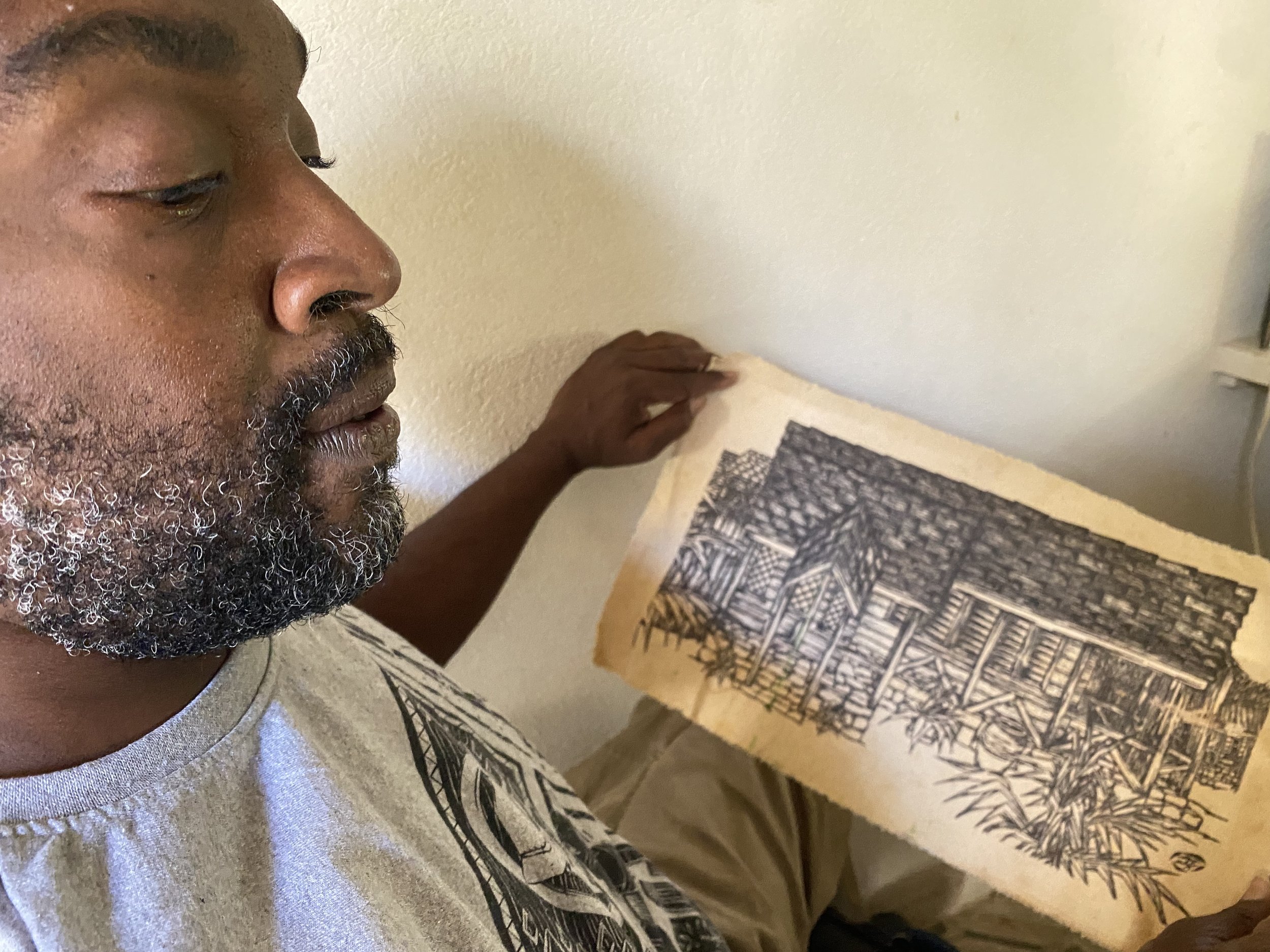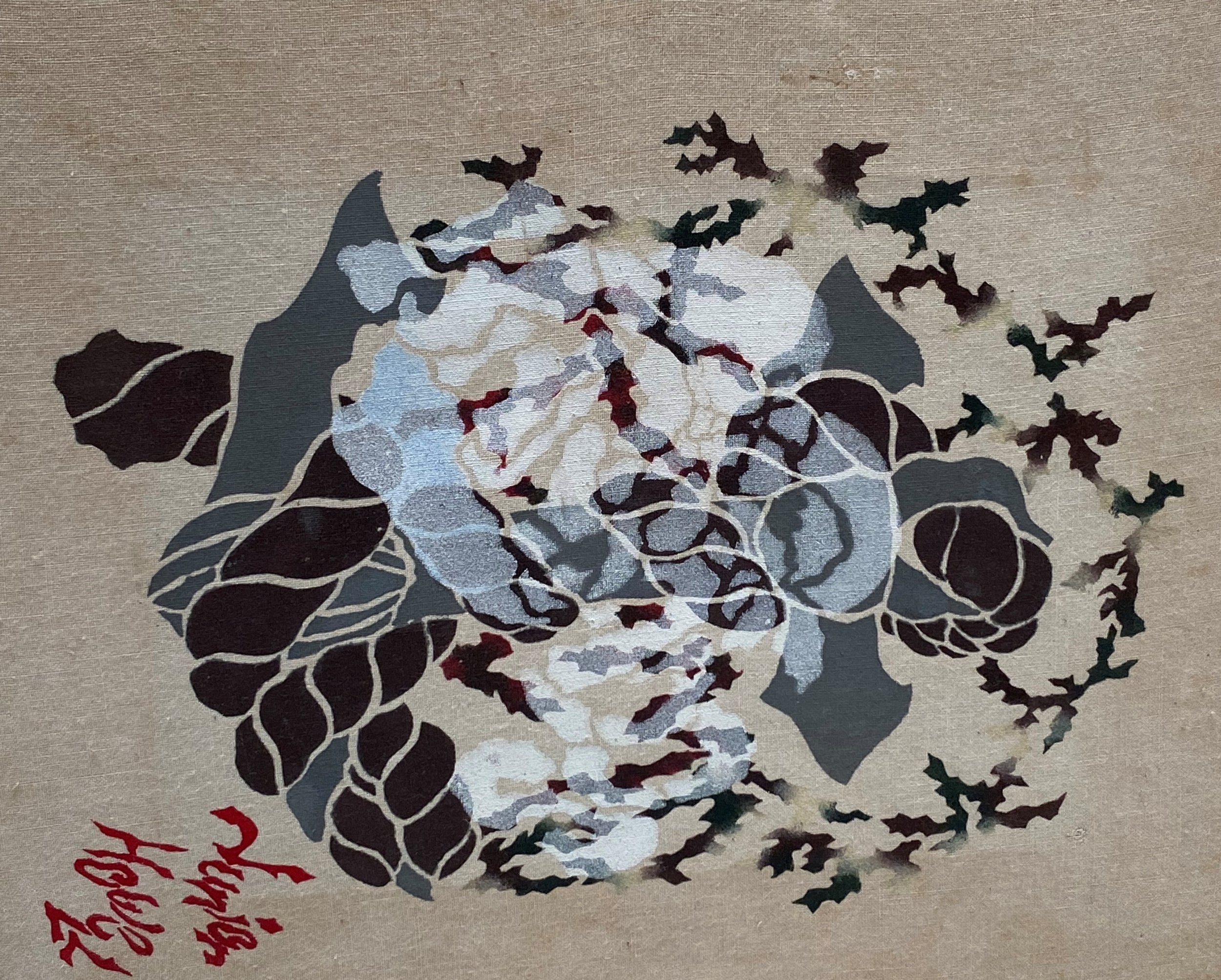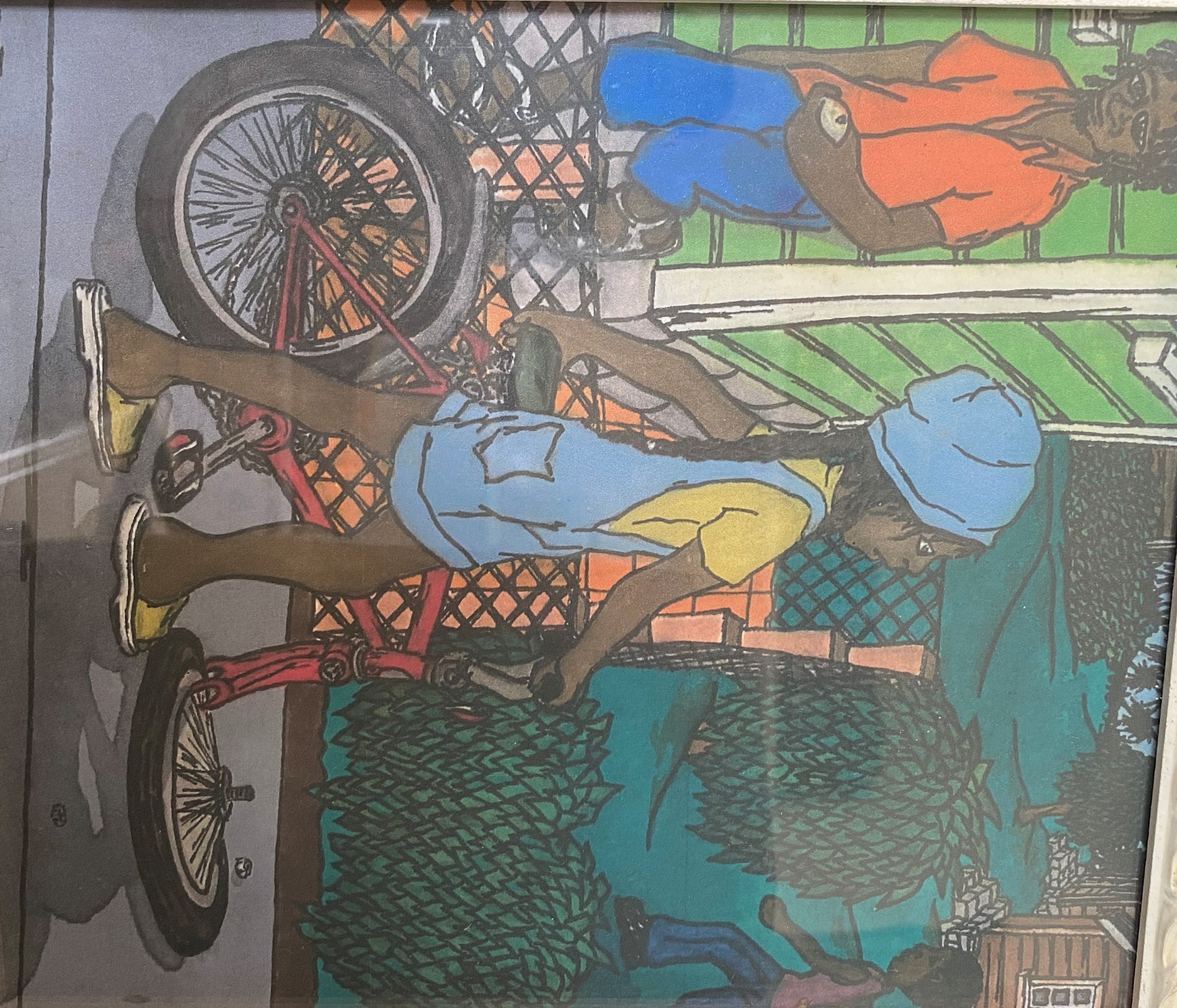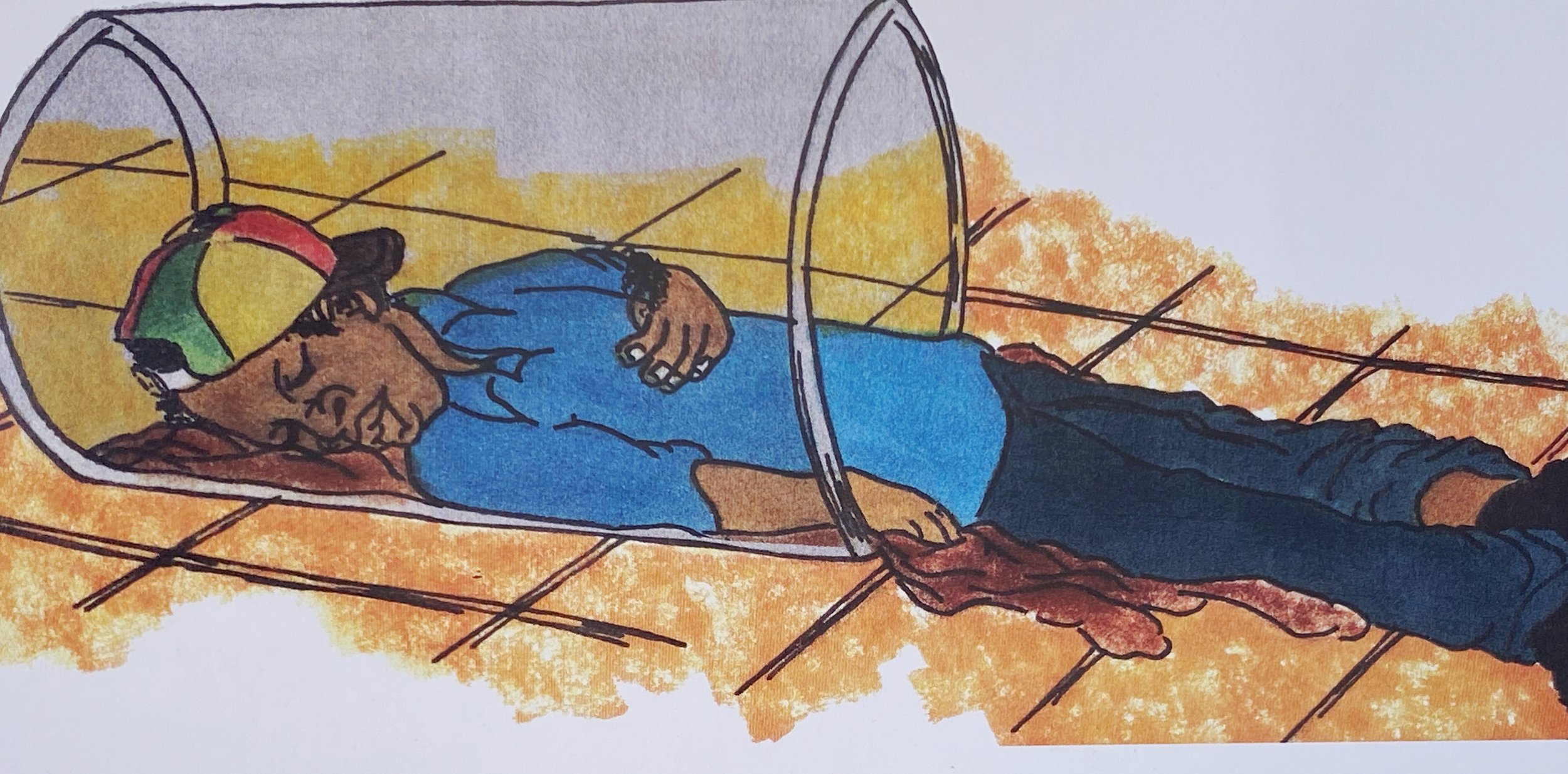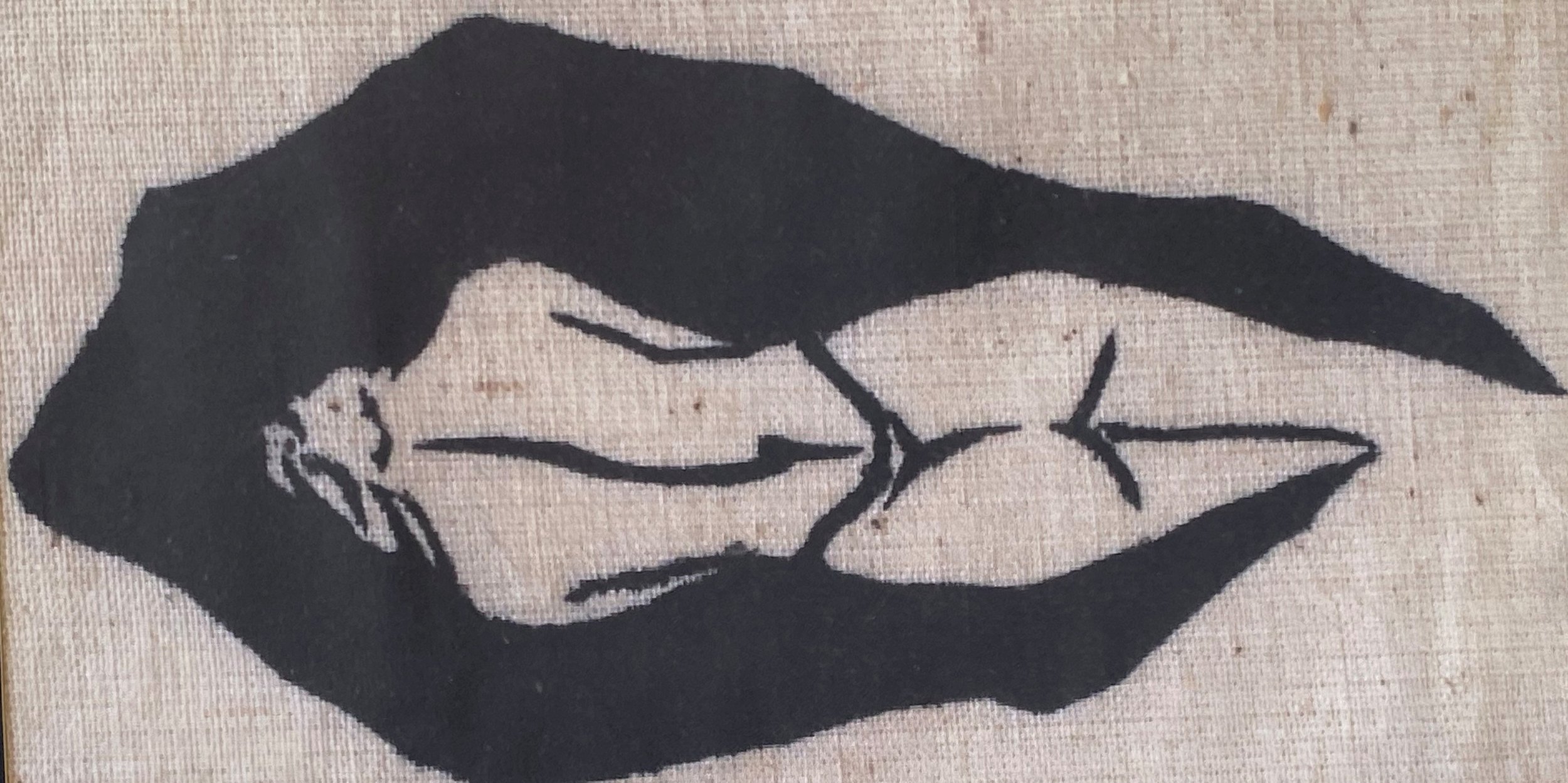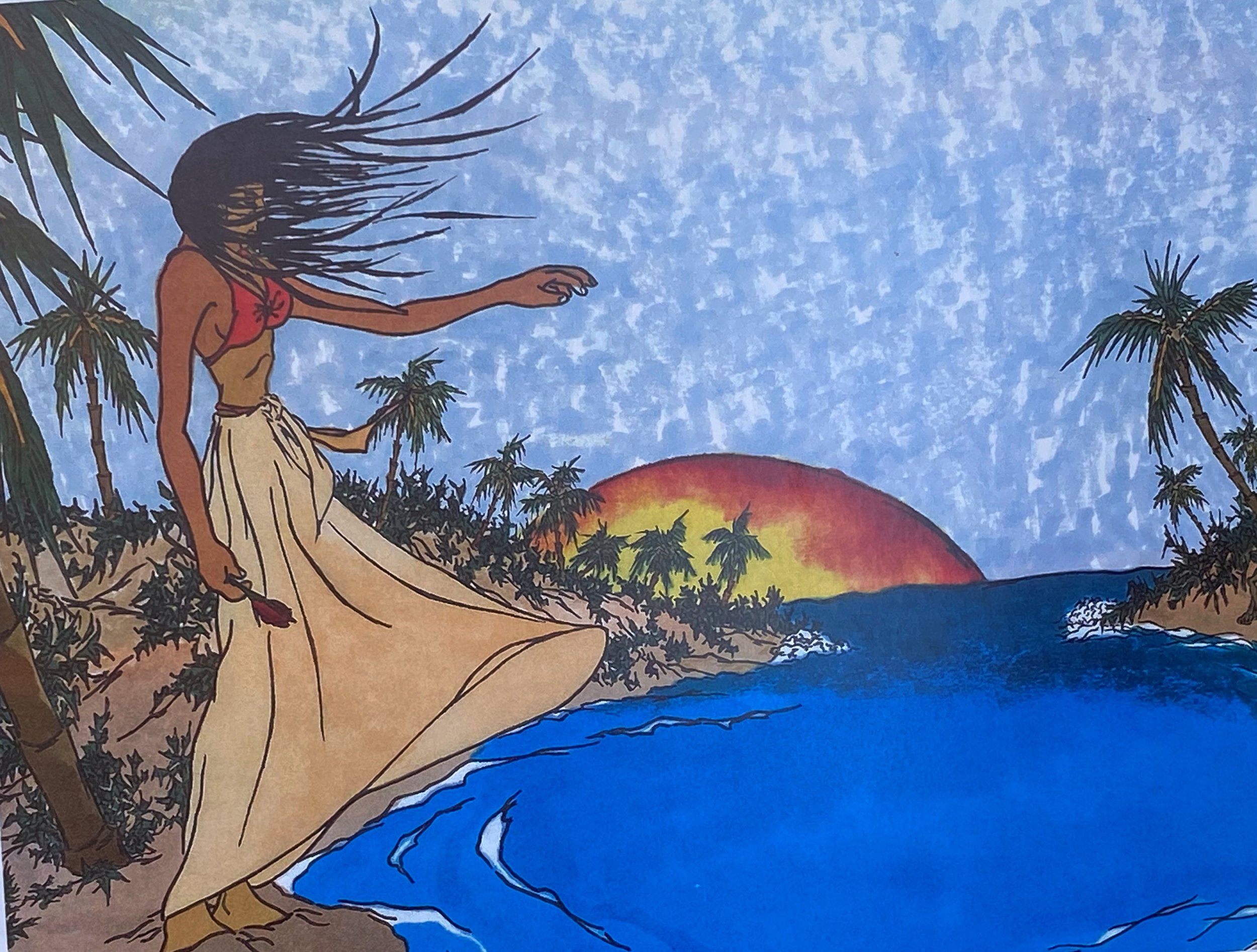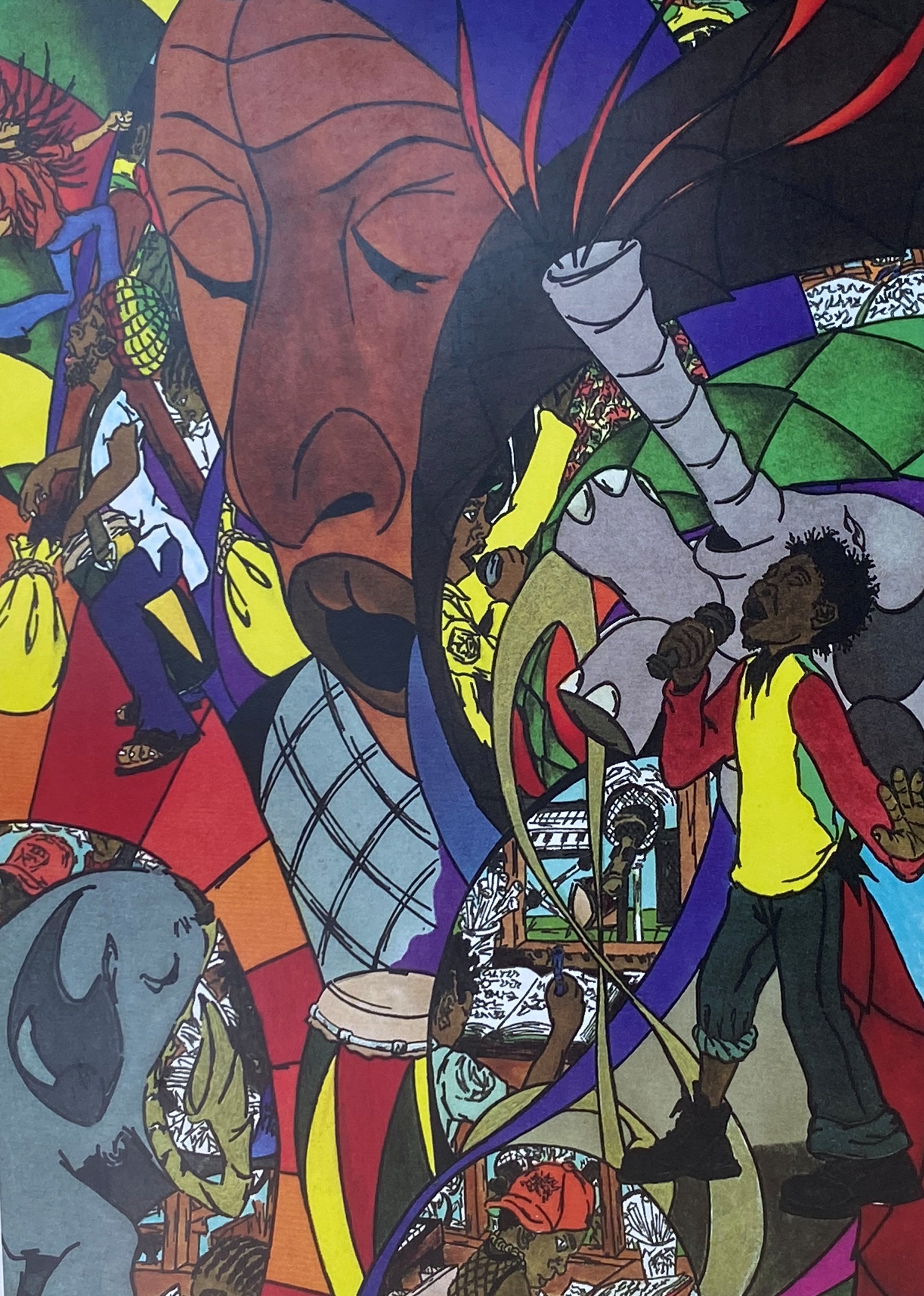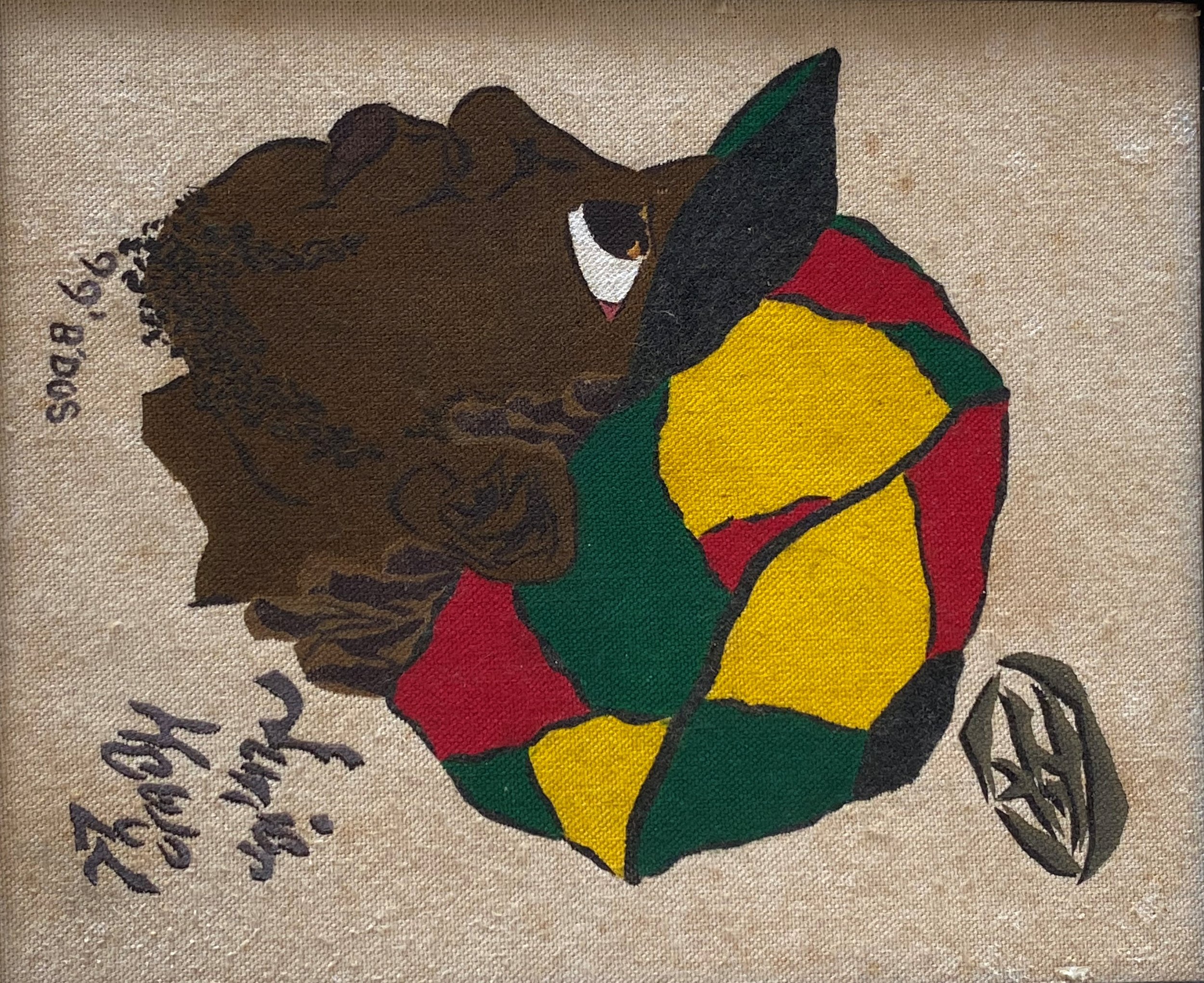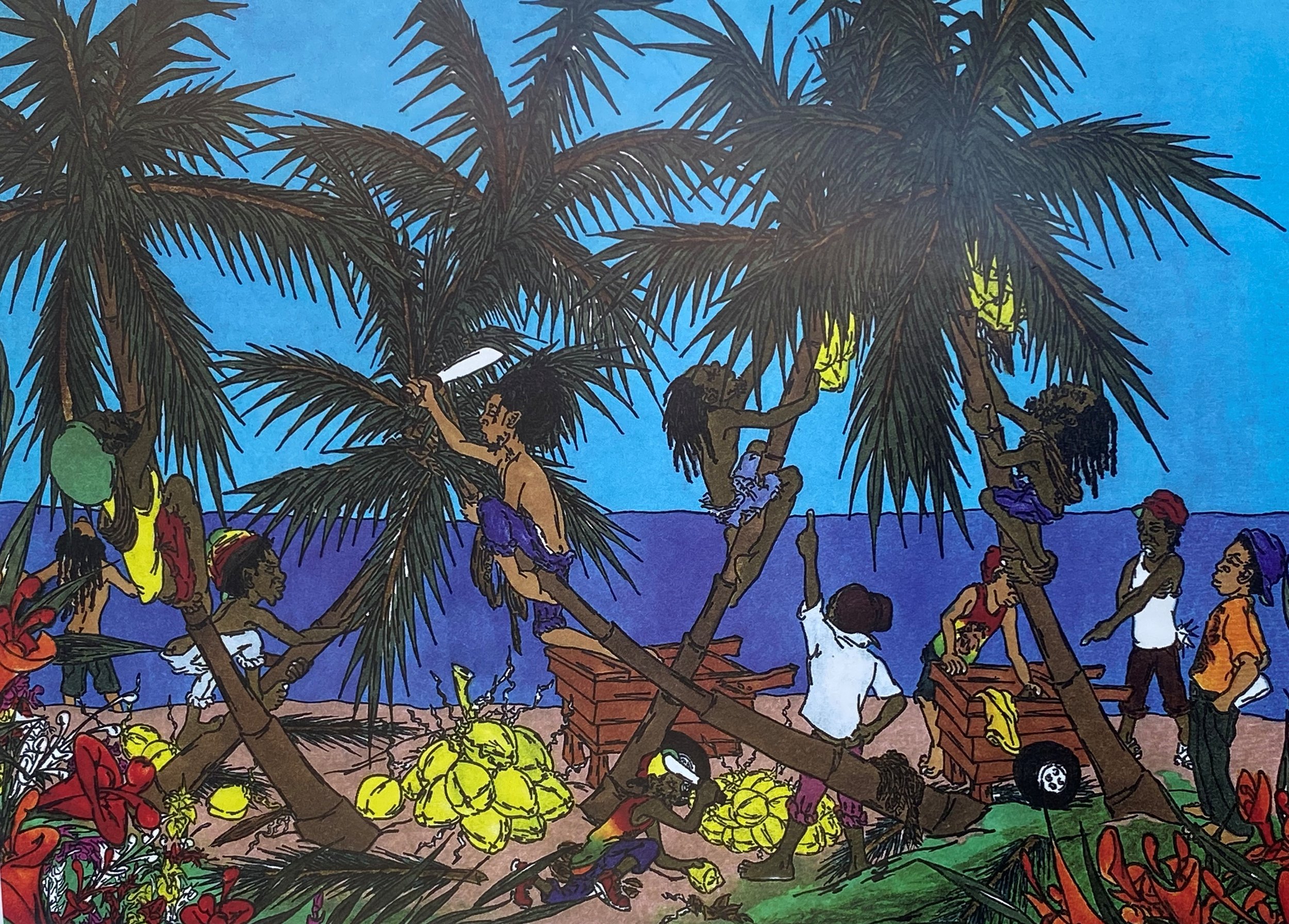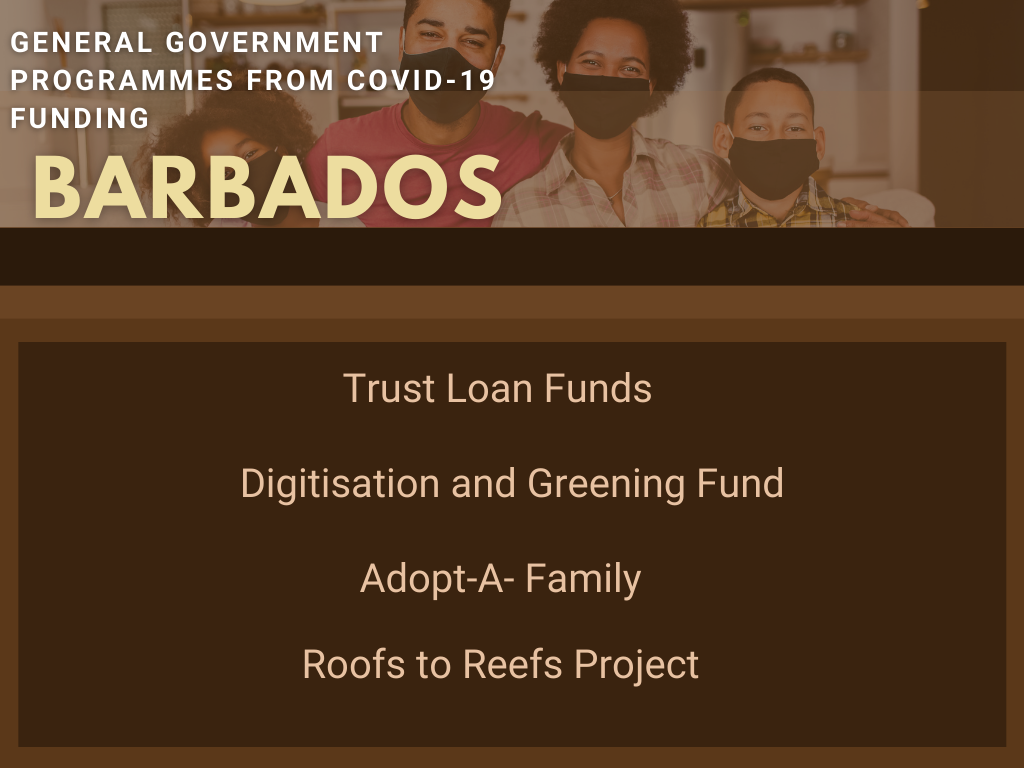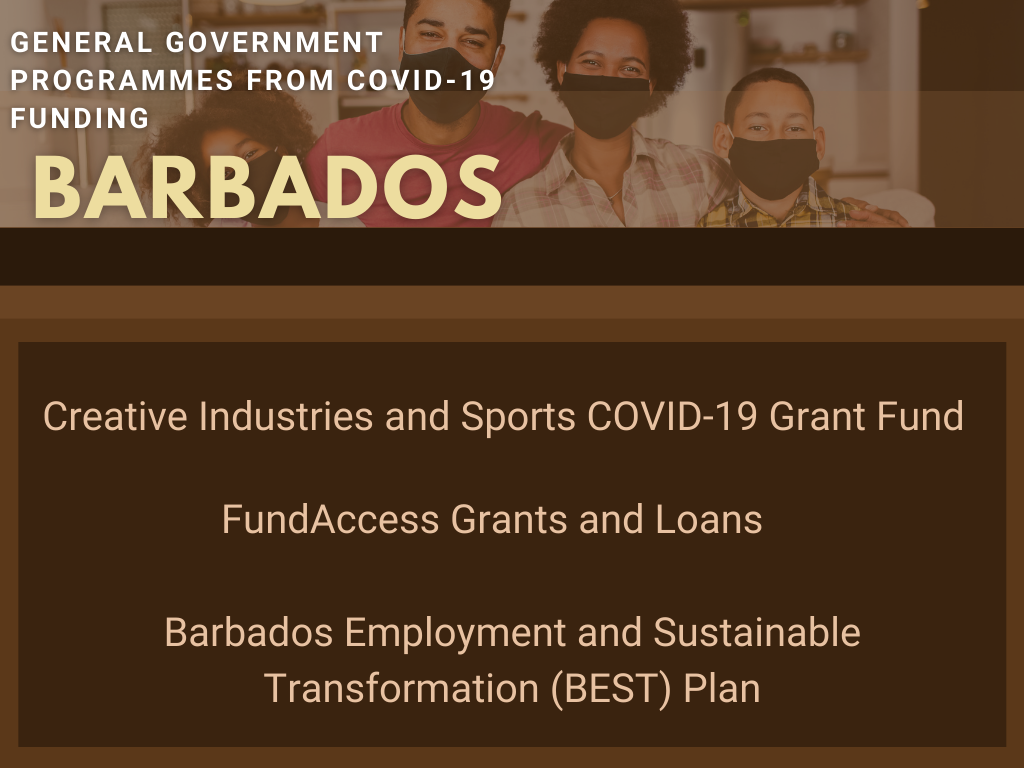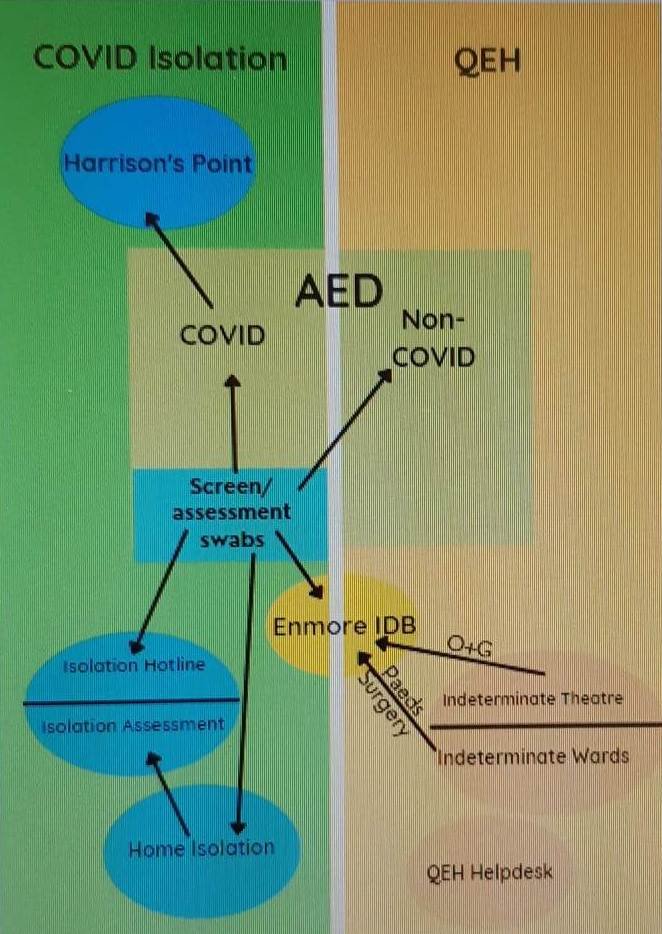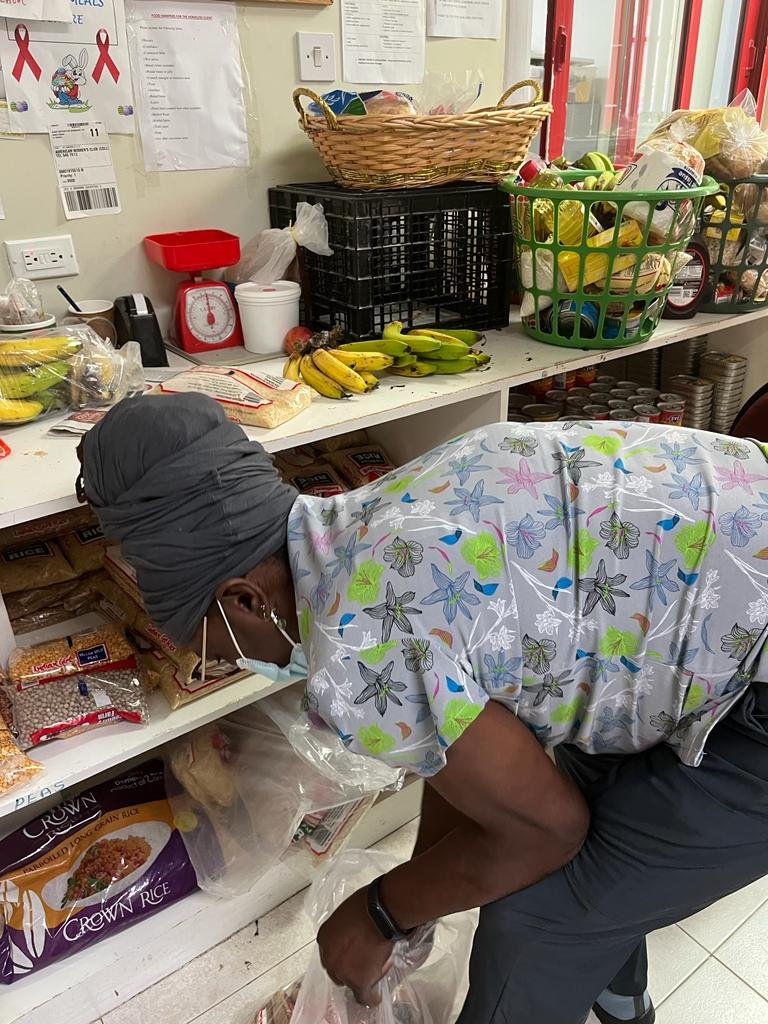Barbados
NAPA/Shutterstock.com
Country: Barbados
Area: 166 square miles
Population: 287,000
Currency: Barbados dollar (Bds$)
Main language: English
Life expectancy: 79.1
BRIDGETOWN, SEPTEMBER 09, 2022 (MIC) -
THE COVID-19 RESET: IS IT BARBADOS' PARADIGM SHIFT?
After almost three years of living inside a COVID-19 bubble, it appears it is about to burst. When it finally "pops", will it trigger a reset for Barbados and the region?
The COVID-19 pandemic created a hero's journey for Barbadians, from citizens coming to grips with debt and the economy and enjoying the complacencies of life to battle-weary soldiers trying to fit into a post-war reality.
As the pin gets closer to the bubble, it puts Barbados at a crossroads, either to create a familiar "back to normal" or to take the opportunity to design something new.
The height of the pandemic left Barbados battered with little time to breathe. Pandemic lockdowns followed by the war in Ukraine and supply chain issues saw higher interest rates and inflation resulting in higher costs of living. Then add to the mix the resurgence of Monkeypox, and you have a potential for economic collapse.
Furthermore, the effects of climate change are never far away from Barbados and other Small Island Developing States (SIDS). According to Caribbean Economist Marla Dukharan, quoting statistics from the International Monetary Fund (IMF), "when an average hurricane hits, it affects the economy for at least 20 years."
In the region, the InterAmerican Development Bank (IDB) described in its quarterly report Finance for Firms: Options for Improving Access and Inclusion the COVID-19 effects on the region.
"It affected Latin American and Caribbean economies more severely than any other region in the world. Out of 195 countries globally for which consistent data were available, 11 of the 20 most significant negative shocks to real GDP growth in 2020 were from Latin America and the Caribbean".
In Barbados, many predictions mirrored those of the international development agencies. The Governor of the Central Bank, Cleviston Haynes expressed similar findings in a recent online "Review of Barbados' Economic Performance - January to June 2022"
Outside of global impacts, Barbados suffered further climatic shocks in 2021. On April 9th, ashfall from the eruption of St. Vincent's Mount Soufriere blanketed Barbados, closing the airport and initiating massive clean-up costs. A month later, on June 16, a "freak" lightning storm lit the sky and the following month, on July 2, Tropical Storm Elsa made landfall on Barbados and developed into a category one hurricane.
The Special Economic Advisor to the Barbados Government, Dr Kevin Greenidge, outlines how these events, along with COVID expenses, played havoc with Barbados' expenditures.
"During the COVID period, we lost $600 million in revenues in the first year. The second year, we probably started to pick back up but were four hundred or so million dollars shorter than what we would have projected prior to COVID. We aren't anywhere where we are supposed to be, but the expenditures went up."
Despite these facts, will borrowing ferry Barbados across rough seas? Economist Ms Dukharan believes 'yes' is the obvious answer.
"When you have a crisis as we've just faced in the last two to three years, what else are you going to do? Are you going to say, Well, I'm not going to pay any unemployment benefits - your people will go hungry." *
Dr Greenidge further sees borrowing as having more funds at a controlled rate to execute government programmes.
"You put that money into productive uses, in government's capital programs and in different things that would generate growth. When you borrow, you borrow at a reasonable [rate] that you can accommodate.
IMF BERT Programme
Outside of the unplanned shocks, Barbados had an additional factor to consider. In October 2018, the IMF approved an IMF structural adjustment programme under its Extend Fund Facility (EFF), devising a debt-restructuring arrangement called the Barbados Economic Recovery Transformation (BERT) plan. This US$250 million programme set Barbados on a path to manage its spiralling debt.
"I think that Barbados was very fortunate going into the pandemic, that we had already dealt with our debt restructure that we had already agreed to a fiscal, a medium-term fiscal framework and fiscal targets in terms of debt to GDP, the fiscal deficit to GDP, all of these things were agreed before the pandemic hit." Ms Dukharan expresses the benefit of the timing of the BERT Plan.
The government's Advisor, Dr Kevin Greenidge, showed that despite the debt to GDP level being high, the BERT programme helped to broaden the base making debt more manageable.
"Before the BERT program, our debt was 179% of GDP. Prior to the COVID, we brought it down to 119%. Because of debt restructuring, it went up by 20 percentage points because the economy collapsed, so we lost about 14%.”
In Barbados' 7th and final review of the Extended Fund Facility in June 2022, the IMF gave Barbados generally a positive report despite the challenges. The review outlined the potential "risks of high prices pushing up inflation and released about US$23 million, bringing total disbursements to around US$435 million. The government is still deciding on additional IMF funding. The review report also commends work in several other areas.
"Over the four-year program, the authorities have steadily moved ahead with their economic reform agenda including the introduction of a revised central bank law, state-owned enterprise (SOE) reform, and reforms of the customs department."
After Barbados' final IMF review, left one outstanding issue, tackling the National Insurance Scheme (NIS). The Barbados Government is actively seeking solutions from the public to boost monies in the fund and to garner more compliance. A shrinking population coupled with an average life expectancy of 80 years will eventually cause strain 15 years from now.
The IMF also took two historic steps in its funding of the region. August 2022, the IMF made available US$650 billion in Special Drawing Rights (SDRs).
"This is a historic decision – the largest SDR allocation in the history of the IMF and a shot in the arm for the global economy at a time of unprecedented crisis. It will particularly help our most vulnerable countries struggling to cope with the impact of the COVID-19 crisis," said Ms Georgieva while explaining the benefits of the fund.
However, for Barbadian Prime Minister Mia Amor Mottley, the second major IMF announcement was a significant step for the region.
"The further battle which is of major importance to us in this region, that of the establishment of the Resilience and Sustainability Trust, which for the first time, substantially lengthens the time that you will lend money to our people, to our countries with a grace period that is substantially longer than anything that we've seen before." describes Prime Minister Mottley at a joint press conference following the visit by the IMF Managing Director, who also backed her sentiments.
"We are also determined to make the Resilience and Sustainability Trust US$45 billion strong instruments that help this region so that can be deployed with the strength of your policies and the support of the IMF."
Also, just recently at a press conference, Prime Minister Mottley, announced that the Government will enter into negotiations with the IMF for another round of funding. Mottley believes this decision will create the “fiscal space” needed during this time of economic instability. PUT IN AUDIO SEE COMMENTS
Government Programmes
The Government of Barbados created several government programmes to respond to the economic punches. These programmes, developed through specific loans totalling nearly $US 1 billion, focused on ways to buffer shocks from COVID, the fallout from world events and climate disturbances.
In a recent statement to The House of Parliament, the Minister in the Ministry of Finance and Economic Affairs, Ryan Straughn, announced government intervention (see graphics) in fuel costs and food prices.
Minister Straughn's presentation added more items into the non-VAT "basket of goods", and grocery store owners agreed to modify profit margins to keep down prices on popular items (see listing).
In the case of fuel, Prime Minister Mottley adjusted rates capping it at $4.48 until January 31, 2023.
To raise funds, the government opened the offerings of the Barbados Optional Savings Scheme (BOSS) Plus bonds to the public. The earlier offering was only for civil servants.
In the area of agriculture, the Barbados government signed agreements at the 43rd Regular Meeting of CARICOM Heads of Government in July 2022 to increase food security. The signings established and re-established channels to share agricultural techniques and land resources.
Although understanding these measures, Consultant Economist Dr Justin Ram advises a longer-term targeted approach.
"I think the better way to go about dealing with this constant vulnerability that a small state like Barbados has to deal with and has to deal with much more frequently is to start putting in place a longer-term economic transformation. If you need social interventions, those social interventions need to be targeted at those who actually need them.
Dr Ram suggests government is attempting "too much" instead of focusing on "what's required to facilitate economic growth".
"So what I think the more important aspect of this building of resilience is really about trying to encourage private sector led grow so that we start to think about building resilience from the individual, then the household, community, and then the nation."
Living Through COVID-19
As the economists and policymakers continue to devise a working formula, people like Suzette Layne, an elegantly dressed wife and "proud" mother of two daughters, have to deal with the everyday realities of shutdowns and online schooling.
Retail Manager, Suzette Layne and her daughters, Hannah (left) and Sumaiyah (right). (Photo by Ricardo Brathwaite)
Like most people, Suzette, a retail manager at Abed's, a local fabric store, heard of the mysterious virus in China but never imagined it would affect her.
During the first shutdown in early 2020, Suzette viewed the break as a mini holiday. Financial institutions gave some ease for repayment, and her employer tried as much as possible to accommodate her financially.
However, the second lockdown in early 2021 tested Suzette and her family.
"In the second lockdown, most institutions were not offering that financial ease and then in that second lockdown, my husband became unemployed, so then it tends to put a financial strain on the household.", Suzette says, remembering those difficult times.
Rebuilding
Moving ahead for individuals and families, like Suzette's, will be a country-wide approach. Key sectors put through the rigors of the pandemic now have to reassess and plan the way forward.
Health
Clearly, a medical emergency such as a pandemic will hit the health services hardest; Barbados was no exception.
There was a need to pull health care professionals from their primary duties to service the COVID intensive care unit at Harrison's Point Isolation Facility and when the vaccine programme started, diverting health personnel to vaccine centres.
The Accident and Emergency at the Queen Elizabeth Hospital became the hub, working between COVID-19 cases and other daily emergencies. The hospital still had to run clinics such as dialysis and chemotherapy and had extensive surgery lists with fewer staff.
The Queen Elizabeth Hospital’s Accident and Emergency Department. (Photo by Esther Jones)
Former Director, Medical Services (Ag) at the Queen Elizabeth Hospital, looks back at the difficulties and backlog.
The constant juggling to meet the backlog drained staff, something the former Director says, is one of the lingering effects of working during COVID.
"Now, they're exhausted, but they can't stop. We're not in a system that can afford those people to leave or to give them a recovery break. And that's going to be one of the post-COVID challenges [we] will have to face."
Although the situation was complicated, COVID brought some simmering issues to light. The COVID response introduced new programmes such as community nursing, telemedicine, a helpdesk manned by health care professionals and prescription delivery service.
All these areas, although needing tweaking, give a foundation to create something new and better suited for the public.
The front entrance of the busy Queen Elizabeth Hospital. (Photo by Esther Jones)
"Everybody just wanted to get back to normal, whatever that is, which in most people's minds was how it was before. And if it wasn't so good before, let's get back to something better." Dr Cave poignantly observes and indicates where to continue.
"The whole movement to telemedicine is something that can be refined, and I think it has to be supported by an electronic medical record system. We couldn't afford it before COVID; I think it's become more of a necessity."
Dr Cave also realises that technology should support good ideas, and people should understand how to use it.
"I think one of the big things we should have learned is that health is a relationship between the users and the providers. It can't just be edicts from the Chief medical officer; it has to be [with] the cooperation of the public."
This cooperation is particularly relevant in the Transitional Community Care Programme; the brainchild of Prime Minister Mottley. The programme trained persons to take care of the basic needs of patients already attending clinics at the hospital.
"As a new program, it had its teething problems. But I think it was remarkably successful in the first year; when we looked at it, one of the outcomes was the number of intervening visits to A&E was drastically reduced for this cohort of patients.
Non Communicable Diseases (NCDs)
Non-communicable diseases (NCDs) became the main factor in the intensity of COVID-19 and attributed to many deaths in Barbados.
"Studies have shown that [NCDs] to be the precursors to persons dying from COVID. There were a number of persons when they did develop COVID-19 disease after contracting the virus, they were negatively impacted." explains the Healthy Caribbean Coalition’s Communications Officer Sheena Warner-Edwards.
Sheena Warner-Edwards, Communications Officer, Healthy Caribbean Coalition (Photo by Esther Jones)
Francine Charles, Programme Manager, Childhood Obesity Prevention, Heart and Stroke Foundation of Barbados, also knows how this number affects Barbados and its role in the pandemic.
"One in five persons is diagnosed with diabetes [in Barbados]. In a way, we saw a kind of numbness [towards] the seriousness and severity of NCDs. But COVID brought up that these diseases weaken your life, diminish you and make you very vulnerable to other things."
Dramatic as these numbers indicated, COVID-19 highlighted the seriousness of NCDs and made some people make a course correction, according to Mrs Warner-Edwards and shown in the regional survey "The Experiences of People Living With NCDs in the Caribbean During the Coronavirus (COVID-19) Pandemic".
"I think coming out of COVID, people could see another side. Some people have held that, and they've changed immediately.
For policymakers, COVID allowed them to see the burden of NCDs on the public and the budget clearer, forcing policies that lingered in boardrooms into action.
In March 2022, the Prime Minister announced a tax increase from 10% to 20% on sugar-sweetened beverages. The Heart and Stroke Foundation of Barbados and the
Healthy Caribbean Coalition cheered this turn of events.
"Barbados has raised their tax on sugar-sweetened beverages to 20% amidst all the pushback and the negativity from the public. But the reality is, when the 10% was introduced, studies showed a reduction in the consumption of sugar-sweetened beverages (see links at the end). Sheena says with pride.
Next was tackling one of the root causes, childhood obesity. After many years, the government will institute the National School Nutrition Policy in September. The policy also includes training school vendors on providing nutritious snacks and children with more healthy options.
Although not yet successful, the campaign for front-of-package octagonal labels received the backing of the Barbados government; and negotiations continue.
The most significant move, though, was to create a department within the Ministry of Health and Wellness to spearhead the action forward. The mandate is to push policy in parliament and provide a national plan.
In the end, Francine sees maintenance as the main ingredient to a successful programme.
"I think government has to focus on how we keep this model sustained because policies can sometimes not produce the full effect, but we have to take this one seriously."
Tourism
Tourism contributes significantly to Barbados’ GDP and foreign exchange. The pandemic put the world on pause, crippling economies like Barbados. According to the Governor of the Central Bank, tourism figures have yet to reach 2019 levels (see graphs).
To answer the slump in visitor arrivals, the government put in place the Welcome Stamp programme. This particular visa for remote workers provided some income but not enough to replace sectoral losses.
For small hotel owner and Chairman of Intimate Hotels of Barbados, Mahmood Patel, staycations and the use of some properties as quarantine and isolation facilities buffered the full effect.
Another buffer was the Barbados Employment and Sustainable Transformation (BEST) Programme. However, this ambitious mandate didn't get the buy-in of the Intimate Hotels of Barbados' members. Out of a membership of forty-four, only four or five members took up the opportunity, Mahmood explains.
"There would have been some structural issues with the fund. Maybe the fund was geared towards more medium-sized hotels with a different kind of legal entity.
These governmental programmes and buffers were expected to keep the sector until relaxed restrictions. There was great expectation for a revitalised sector in 2022. However, in a recent Barbados TODAY interview with the Sales and Marketing Manager for Ocean Hotels Barbados, Jacqui McDermott, she said, "it has been deathly quiet for new bookings for the summer".
Small hotel owner Mahmood Patel has some ideas about why this may be happening. He breaks it down internationally, regionally and locally.
"We know we had the supply chain issues in terms of airlines and airports. Airlines can't get flights to come and cancelling flights and so on, so the price of tickets went up exponentially."
Mahmood believes source markets found the COVID-19 protocols too restricted.
"Our COVID protocols were very good, and the Ministry of Health did an excellent job. [However] in England, for instance, they had let go all the regimes of testing at the airport, and we were still being very careful and controlling it.
Regionally, Mahmood attributes the slow recovery to the collapse of regional airlines and the lack of robust inter-island travel.
Closer to home, Mahmood admits that the tourism industry has to evolve into a new tourism product, moving away from the "sun and sand" model to being more sustainable and multi-dimensional.
Mahmood is trying to lead by example. Along with Oceanspray Apartments, Mahmood owns Coco Hill Forest, a nature sanctuary with several hiking paths. Coco Hill Forest is also a farm providing food for his restaurant at Oceanspray.
Most importantly, Mahmood would like to see a transformation in the Small Hotel Investment Fund (SHIF). Created in 1999 through the Enterprise Growth Fund Ltd., to help small hotel owners grow their business.
"There is a population of Barbadians that own hotels. You have to give credit to SHIF for making that happen and allowing us to borrow money that the commercial banks would have never lent us to renovate and refurbish."
Mahmood, however, feels SHIF should include mentoring throughout the funding period so hotel owner can have a team approach.
In the end, this COVID reset made Mahmood questions the viability of the tourism industry and its impact on Barbados’ GDP.
"Should we have used this opportunity to reinvent Barbados [instead] of just blindly letting tourism develop itself? We got to make sure that the new tourism is not seasonal anymore, and it's more community-driven and touches everybody, and we all can earn from it in a sustainable way.
Moving Forward
The COVID-19 pandemic rocked the world, bringing many households to their knees. Devastating as this period has been, it forces a re-examination and creating an opportunity to do something different.
According to Consultant Economist Dr Justin Ram, this new paradigm begins by fostering economic freedom.
"Where governments are not too much of a burden on the economy, where it's easy to trade across borders, where property rights matter, and generally where entrepreneurial activity is supported."
He further states that the development of highly skilled people should start as soon a child enters school and should encourage learning and skills mastery.
COVID also shows that going digital has many benefits for lives and livelihoods, challenging ideas surrounding working hours, location and work jurisdictions.
On a family level, Retail Manager Suzette Layne was able to reassess what was truly important.
"It helped prepare me mentally and emotionally. I now have a different perspective on life and freedoms that we take for granted."
Suzette Layne continues to bake, a hobby she nurtured during the first lockdown. (Photo by Suzette Layne)
It is now up to Barbados to chart this new course along the hero’s journey. In Dr Cave's poignant words, Barbadians working together and looking for opportunities can use this reset to start something new.
"The advantage of Barbados is it's like David and Goliath. It is the David aspect, where you have to think smart and different, not just depend on size and resources, and being prepared. That little slingshot, when used appropriately, can bring down massive problems."
bridgetown, June 7, 2022 (MIC) -
CLIMBING OUT OF THE ABYSS: PLANS FOR RECOVERY
When the 2019 novel coronavirus first hit the news in Barbados, Barbadians paid mild interest and went back to planning their Independence and Christmas celebrations. Little did they know how much this news would change their lives and rearrange the country's development.
In 2018, after an administration change in Barbados, the newly elected Government entered into the Barbados Economic Recovery and Transformation (BERT) programme under the International Monetary Fund's (IMF) Extended Fund Facility (EFF).
The IMF lent funds to stabilise Barbados' economy, improve infrastructure and build back foreign reserves.
Other loans by the Inter-American Development Bank (IDB) and the Caribbean Development Bank (CDB) also made funds available for climate change mitigation and infrastructure development. The IDB Group Country Strategy with Barbados (2019-2023) report issued in March 2019 states the reason for loan financing.
"The [Barbados] government's vision is built on seven pillars which will support long-term growth and development for the country; focusing on the areas of education, skills training and health, broadening access to finance and opportunities, greater competitiveness and the adoption of new technology."
Then 2020 rolled around, and Barbados fell headlong into a COVID-19 abyss. The main sectors targeted for strengthening became non-existent, and the country was in complete lockdown for an unspecified period.
Senior Biostatistician in the Ministry of Health and Wellness, Asokore Beckles, says so far Government has spent approximately "US 120 to $150 million (BDS $240 to 300 million)"* on COVID-19 on direct, unplanned costs.
"And that is not even all the costs. That is, if you're comparing the non-interest expenditure from maybe last year [2021] to this year [2022], and then you still have between 2020 and 2021 to add in. I think that's too much to try to just put a number on."
Some of the hardest-hit sectors were creative, small business/entrepreneurial and tourism, contributing to the elevation of the unemployment rate, at its highest, to 17.9% in the 3rd quarter of 2020 from 10.1% in 2019.
Stats provided by the Barbados Statistical Service (BSS).
Barbadians working in these sectors went from employment to unemployment with little warning. Chief Cultural Officer at the National Cultural Foundation (NCF), Andrea Wells, outlines the difficult times.
National Cultural Foundation (NCF), Chief Cultural Officer, Andrea Wells. (photo courtesy of the NCF).
"With the closure of tourism, nobody was travelling a lot of artists found themselves on the breadline, out of work with very few options, because art, especially art that is commercialised, requires engagement with the community of fans, all those opportunities dried up. Many of them were quite depressed. [They] couldn't afford to pay rent to live separately. Many had to move back home and scale down and just rethink what they're going to do to meet their commitments."
Cosmetologist Krissa Sandiford; visual artist Junior Howell; and Michael Smith, the owner of Anime Spot Barbados, a hobby store dealing with anime, manga, comics, and games; had bustling businesses with great clienteles before COVID-19. Still, with the lockdown announcement, they felt the pressure immediately.
"It affected the business pretty hard because my husband wasn't working because he couldn't work, and I couldn't work. I would say it really attacked our finances." Krissa relates grimly.
Like Krissa, Michael also shares this experience.
"When COVID hit, it had everything locked down. My store is basically an open place where people can come and meet and hang out. We do tournaments and events and stuff like that. I was one of the first places to close, and because of the structure, I was one of the last places to reopen. I'm basically just hanging on. Thankfully, I'm still here."
Shop owner of Anime Spot Barbados, Michael Smith, shows his collection of comics for sale. (Photo – Esther Jones).
In Junior's case, with the closure of the Bridgetown Port and the suspension of all cruise ships, his selling opportunities quickly ended, and he had to look in a new direction.
Visual artist, Junior Howell, shows his artwork, pen and ink on canvas. (Photo – Esther Jones).
"To tell you the truth, the COVID pandemic totally shut off my business and changed the dynamics. Now everything has been focused on being more digital, and that aspect of the business was something that I was trying to get into."
For professional musicians, composers and tutors in music at the Barbados Community College (BCC), Andre Woodvine and Roger Gittens did not experience a total hit to their livelihoods. They were still able to teach but lost finances when performances ended.
While teaching, the Head of Performing Arts, Roger Gittens, had difficulty pivoting to an online platform and sadly, he observed some students suffering mentally with the lockdown.
"I found during COVID I had more students with mental-emotional issues. Between the two year groups, there are approximately 60 students. I counted six that I knew who came to me with a problem, or it manifested itself in class, and I had to deal with it. Six out of 60, that's a tenth of the class. I mean, they had to get medication, see the counsellor, that type of thing."
To keep lives and livelihoods afloat and bolster the health care system already under strain from chronic NCDs had to come in the form of lifelines and further assistance from international funding agencies.
Barbados received almost a half-billion dollars US from the IDB to assist recovery. Upon sign-off approval, the IMF's recent 7th mission visit in May 2022 will allow Barbados to draw down another US $23 million (BDS $46 million) from the Extended Fund Facility to add to the US $24 million (BDS $48 million) drawn down after the 6th review in December 2021.
The key, however, to the post-lockdown resurrection in the devastated sectors happened during the height of the COVID-19 lockdown. Dedicated monies from international loans transferred to retooling, digitising, educating and strengthening entrepreneurs and those working in arts and tourism.
General Manager of the Barbados Agency for Micro Enterprise Development Ltd. (FundAccess), Esther Lord-Graham, worked with clients during each lockdown stage. The agency also dispersed funds earmarked for small business owners by the Barbados Government.
"We acted as one Government's disbursement centres for the [Small and Micro Enterprises] SME Wage Fund. The first set of it was to assist persons, to keep people employed. Persons were able to apply to Fund Access to cover up to BDS $5,000 (US $2500) in wages. We would have disbursed a couple of million dollars from that fund, not only for FundAccess clients but entrepreneurs throughout Barbados.
Outside of the SME Wage Fund, FundAccess worked directly with their clients to tailor how best they could assist.
The General Manager, Esther Grant-Graham, highlights the Personal Protective Equipment (PPE) grant to assist businesses opening.
"Those that applied would have received the grant so that their businesses were in a position to reopen. Some of them got larger grants because they needed to reorganise the way their business was laid out so they could also accommodate reopening."
Like small business owners, the Government earmarked funds for creative professionals. Prime Minister of Barbados, Mia Amor Mottley, announced in her May 2020 wrap-up of the Budget of Expenditure a BDS $1million (US $500,000) fund administered through the National Cultural Foundation (NCF) as the Chief Cultural Officer, Andrea Wells, explains.
"I think Barbados is one of the only Caribbean countries who actually voted a COVID $1 million to be used as a grant fund for artists to apply for [in order] to use their time to create and produce digital content; or to upgrade their electronic press kits, anything to get themselves ready for when the markets reopen. The downtime was spent conscientiously building up their brand and preparing for better marketing themselves. I think applications were allowed up to BDS $30,000 (US $15,000)."
According to the Minister in the Office of the Prime Minister, Senator Dr Shantal Munro-Knight, the COVID-19 Grant Fund included many outlets to upgrade, expose, and create engagement after much discussion.
Funding for the tourism sector came in September 2020 at the 2nd Opening of Parliament. The Barbados Employment and Sustainable Transformation (BEST) Plan was a stimulus package of BDS $300 million (US $150 million) for a sector brought to a standstill.
The Minister of Tourism and International Transport, Senator Lisa Cummins, in an interview with the Government's Public Affairs Department, looked at the areas where the BEST plan prepared the industry for reopening.
"That programme has three main components; a wages subsidy and wages component, really to ensure that hotels are able to bring their workers back to work. There is a renewable energy component, and of course, there is a digitalisation component in the programme."
In 2022, Barbadian health and government officials triggered the start of the climb out of the crater. Officials eliminated the curfew and lockdown, loosened the COVID-19 protocols, and announced the return of the Crop Over festival from its two-year hiatus and other recreational and sporting events.
The projects and funds created during lockdown prepared the sector for the modified, face-to-face Crop Over festival. The two-year hiatus was detrimental to band leaders, tourism and creative professional, bringing significant financial loss as the primary income earner in all these sectors.
"The decision to go with Crop Over was due to the fact that the world was beginning to experiment with opening up while we're still in the pandemic. So it's not the full Crop Over as we normally have it. In the context of venues being selected for use and vetted for maximum numbers based on space, it can allow people to adequately distance social distance." Chief Cultural Officer Andrea Wells explains the new modified festival that includes not only the "jump up" but it's an entire programme highlighting the work of the creative professionals during the lockdown.
The bandleader of Kontact Band Barbados and President of the Barbados Association of Masqueraders (BAM), Anthony Layne, is already glad to get back to a physical Kadooment.
"We have launched already. The response is quite encouraging. It looks good. It looks like if numbers will come, you know, but you still have to wait and see. It's alright to have a lot of positive comments on IG and a lot of likes and people liking the costumes and saying how pretty they are and all of that, that is fine, but you have to turn that into numbers."
Senator Dr Munro-Knight stresses the need to keep in mind that opening has to consider the pandemic.
"I do want to say very frontally that Crop Over is important, providing opportunities for cultural practitioners to operate, but we are still in a COVID environment. We're still in an environment in which we are having deaths almost daily here in Barbados, and for the Government, protecting health and wellness has to be the priority."
Outside of the festivals, sporting events and other forms of entertainment to open up Barbados after the extended COVID-19 lockdown, recent budgetary measures support returning to a relative “normal”.
A sample of the grant and loan schemes funded by the Government of Barbados.
In March this year, the Prime Minister of Barbados and Minister of Finance, Economic Affairs and Investment, Mia Amor Mottley, laid the 2022 Budgetary Proposals and Financial Statement. The budget speech braced for the impacts of the war in Ukraine and sanctions on Russia, the upcoming hurricane season and filling a sizeable fiscal hole brought on by COVID-19.
The budget tackled divesting the National Insurance Scheme Fund, giving it more autonomy to invest and make a profit. It placed a "Pandemic Contribution Tax" of 15% on companies and financial institutions that made a profit during the lockdown. Starting April 1st for one year, a 1% Pandemic Contribution Levy on an individual whose gross income is BDS $75,000 (US $37,500).
Besides taxes/levies and divestments, the budget outlined several caps on items, such as fuel and import charges most likely to increase due to supply chain disruptions caused by the war in Ukraine.
However, “there is a silver lining for every dark cloud”, especially for those in the most impacted sectors. The pandemic’s “dark cloud” revealed the “silver lining” of retooling and retraining; the usefulness of online platforms, creating emergency saving plans; and developing more alliances with institutions, colleagues and family.
Chief Cultural Officer poignantly stresses why creativity is the lifeboat of any nation.
"These are stories that can be told because it shows persons that if you're creative, while hard times might hit you, it also encourages you to be even more creative as a response to it. That is something that everyone can learn from; creativity ultimately will be our saving grace."
*note approximate exchange rate - US $1 = BDS $2
bridgetown, FEBRUARY 20, 2022 (MIC) -
IN THE STORM – THE OTHER SIDE OF COVID
Like a tsunami, the COVID-19 viral disease came rushing onto the shores of Barbados with all the dramatic effects of a massive natural event. The initial hit was explosive, steering all the attention to containing and reducing the spread of COVID-19.
This unexpected pressure on the already delicately balanced healthcare system created fissures throughout the structure, making it a daily struggle to keep people safe from COVID and maintain other areas of health.
To slow down the cracks, international funding agencies and developed countries offered assistance to mitigate "disaster".
For Barbados, access to close to 1/2 billion US dollars in loans, grants, and funding pools (see chart) was made available to prevent a health and economic catastrophe.
In the face of battling the pandemic, Barbados also went through a "hat-trick" of natural disasters in 2021, starting with ashfall from the eruption of St. Vincent's Mount Soufriere on April 9. A "freak" lightning storm on June 16 and on July 2, tropical storm Elsa intensified to a category 1 hurricane.
A tree is completely uprooted in Speightstown, St Peter, following the passage of Hurricane Elsa on July 2, 2021.
These unexpected events sucked resources directed to the pandemic, further decreasing funds for other areas such as healthcare.
Before COVID-19, the Ministry of Health and Wellness split healthcare into three categories, community care and primary health care under the polyclinics and specialty and tertiary care under the Queen Elizabeth Hospital.
The Queen Elizabeth Hospital’s front entrance with outside waiting facilities due to COVID-19. (Photo – Esther Jones)
When the pandemic struck, medical officers knew the priority was to change the setup. Acting Director of Medical Services and Senior Consultant Paediatrician (Neonatologist), Dr Clyde Cave, explains the plan.
“Here was somewhat different to some of the other islands. For the Queen Elizabeth Hospital and tertiary care, the decision was made to try as much as possible and keep COVID care out to the hospital. Some of the other islands, with fewer resources, had to try and partition off their hospital. As it turns out, we did not do that. And I think that was a brilliant stroke."
The Queen Elizabeth Hospital’s Accident and Emergency Department. (Photo – Esther Jones)
The next part of the plan was to rearrange Accident and Emergency and convert it to a "sorting" area for admissions, transferring those with COVID-19 to the newly built Harrison Point Isolation Facility.
A visual breakdown of how Accident & Emergency is designed to admit patients. (provided by Dr. Clyde Cave)
However, if a patient was positive and needed the speciality services provided at the QEH, they stayed on a separate floor, handling COVID-19 positive patients.
Although Harrison Point took some pressure off the main hospital, it spread the staff even thinner around the already strained medical facilities.
"When Harrison Point was stood up, the speciality staff came from the Queen Elizabeth Hospital. People were still demanding the fast turnover of in-patient with less people." Dr Cave further stated that junior doctors filled the gaps, although not always feasible.
"Junior doctors don't have the training and the expertise of the more experienced residents who were moved to Harrison Point because of the sicker patients there. We did keep some back, but it was a constant juggle. That juggle was made more difficult because, with an infectious disease, you don't really want to work in an infectious ward in the morning and ICU in the afternoon and then have an outbreak."
Dr Cave further explained that even with the infusion of 95 nurses from Ghana and 15 doctors and lab specialists from Cuba, making sure everything ran was challenging.
"People in the ministry moved more into testing and vaccination while trying to continue their primary care, but you know that suffered. When you have people showing up with COVID at their urgent care or general health clinics, the regular stuff gets a back seat. When you're contact tracing and vaccinating, then the childhood immunizations, take a pause."
This fact concerns Dr Cave and the Pan American Health Organization (PAHO). Though child health clinics never stopped, parents opted not to go to the polyclinics and expose their children to COVID. Furthermore, with schools not being face-to-face, the routine immunisation for HPV, tetanus, and measles/mumps/rubella (MMR) is not readily enforced.
Beyond the interruptions in the immunisation programme, Barbados has about 70% of the population dealing with a non-communicable disease (NCD). The pandemic interrupted the schedule of treatment and management due to shutdowns, spacing protocols and supply chain delays.
On March 15, 2018, Julie Carrington's life changed after her progressive form of breast cancer diagnosis. Her treatment regime was surgery followed by chemo, radiation, and 18 injections of Herceptin. The length of Julie's treatment extended into the pandemic. However, due to the urgent nature of cancer treatments, the hospital came up with creative ways to provide care.
"There was always an emphasis on treating cancer patients with priority, but obviously, in COVID, the only reason I didn't have treatment is if the particular drug was not available, then I will not have the injection on a particular day. The delay was never like, a month or anything like that, and it's like two weeks." Julie continues to relate her experience.
"It is more like a telemedicine type of thing now. They [hospital staff] will call to say, 'Well, are you having any issues right now? Are you eating well? Are you having your bodily functions carried out the way they should be? Do you feel any lumps?' So once you answer in the affirmative, they would [say], 'Well, we want you to come back in, three months' time'. So, I've had a few of my appointments put back that way because of COVID."
Keith Henry also noticed the changes as he managed his NCD amid COVID-19. Keith received his kidney disease diagnosis on March 25, 2004. He goes for dialysis several times per week, and he noticed a change in time spent on the dialysis machine.
Dialysis Clinic patient, Keith Henry. (Photo - Esther Jones)
“Long before COVID hit, I used to get three and a half hours. When COVID hit, they cut my dialysis to 3 hours. I understand that the quota of nurses in the unit should be six at least, so that means there should be twelve per day, one set in the morning and one in the evening. Tuesday, you had that. Each person had three [patients]. Today my nurse had six. On Tuesday, those six would have been divided between two people."
According to Dr Cave, the squeeze is due to many patients requiring dialysis.
"We have outsourced a large number of patients for dialysis [because] it is more than the Queen Elizabeth Hospital can bear. The Ministry of Health and Wellness has a programme where the patients are in our renal clinic, but the actual physical dialysis is outsourced to some other providers at significant costs.”
Dr. Lisa Belle, Consultant Nephrologist and Head of Department of Nephrology further supports Dr Cave’s reasoning.
The Dialysis Clinic at the Queen Elizabeth Hospital. (Photo – Esther Jones)
“Dialysis times were not cut due to the COVID pandemic, but rather to facilitate increasing numbers of patients requiring dialysis on the unit.
“There have been staff shortages in the Unit and the remainder of the hospital for some time now. Our situation has been made worse because dialysis nurses are often required to go to Harrison Point. Patients at that facility [were] patients previously on dialysis and now with COVID, as well as patients developing severe kidney disease during their isolation - as a result of COVID -19 infection.”
things are somewhat different in the area of HIV and AIDS. Barbados’ HIV and AIDS programme received separate funding for a few decades. Out of those funds came the construction of the Ladymeade Reference Unit, which provides health management for persons living with HIV and AIDS, and little changed to that arrangement when COVID-19 hit.
Also, in that compound is the HIV Foodbank. This facility, conceived in 1992 by Healthcare provider Vashti Inniss, provides food hampers, nutritional information, and public education on HIV and AIDS.
Former HIV Foodbank Manager and Community Nutrition Officer Stacia Whittaker witnessed daily how the foodbank filled the gap for many persons living with HIV and AIDS. However, COVID-19 challenged the HIV Foodbank's mandate, with the Ministry of Health and Wellness and donors feeling the financial pinch. At times, Stacia wondered if she would have to turn people away.
Volunteer, Kedelyn Morgan-Richards helps to restock a shelf at the HIV Food Bank. (Photo courtesy of Stacia Whittaker)
"We did realise, and we did accept that, yes, funding was not readily available as it would have in the past, but we found ways and means to try to manage as much as we can still to assist. Yes, the hampers were not as full as we wanted them to be. At certain times, we didn't have the variety that we wished. But we kept going, and we kept calling and writing or whatever we had to do to make it happen and make it possible for our clients."
Although COVID-19 put pressure on an already delicate health system, funds created a foundation for several new programmes.
For the polyclinic and hospital services, Dr Cave outlines three programmes implemented to reduce the impact of COVID-19 on other areas of health.
Processing a prescription refill for the Pharmacy Delivery Service provided by the Queen Elizabeth Hospital. (Photo – Esther Jones)
"One was the delivery service of the pharmacy. So that if you have repeat prescriptions, you know, which would be in the system, you can call in and say, Yes, you are ready for your repeat, and it can be delivered initially free. It now has a user cost of $10 per delivery.”
The second is the Transitional Community Care Programme, taking the hospital into the community.
"The vulnerable patients who are already our speciality patients at the hospital, maybe attending two or three different clinics, diabetes, hypertension, cardiac surgical dressings for the leg ulcers, and we have trained a number of health care workers. They're not fully trained workers, we did the in-house training, and under a team of other supervising nurses, doctors, and social workers, they go into the homes of [vulnerable] people."
The third programme outlined by Dr Cave is the help desk staffed by doctors, nurses, ambulance technicians.
"People initially who had challenges continuing their work in the physical environment, people with back injuries, who could man a telephone line. So it's not a hotline, these are people who have the expertise to respond to you, and that's turned out to be very helpful."
Yet, in the end, Dr Cave is bracing for after the COVID-19 wave, like in a storm, when the cleanup begins.
"I think our biggest downfall will be to think that the healthcare impact and crisis will be over when the COVID wave goes down, and I think that's when it's just going to be beginning. And we're going to need to do with deal with the fallout. It was a system that needed rethinking and reorganising, and unfortunately, health services are expensive."
It is difficult to see the silver lining during the storm, especially as the pandemic is still putting Barbados through its paces. However, Stacia sums it up as the way forward.
"We're all in this together. We go further when we're together."
bridgetown, OcTober 14, 2021 (MIC) -
Barbados is trying to grapple with an alarming truth revealed by a WHO 2018 study that non-communicable diseases (NCDs) are responsible for 83 % of all deaths in this 166 square-mile island whose population is well over 288,000 people.
And if one accepts the information provided by health professionals that obesity and poor diet are known drivers of NCDs, it should not be difficult to appreciate the need to be able to access adequate supplies of healthy, affordable foods particularly in a COVID environment where it’s no longer business as usual.
It is also instructive to note that public health practitioners have identified people with NCDs as high-risk for potential severe outcomes once they have contracted the virus.
This report will therefore examine how the pandemic has affected the food chain in Barbados, what the domino effects look like and how any weaknesses in the links of that chain can be strengthened for the saving grace of a small developing state like Barbados which imports an average Bds$325 million in food every year.
The Minister of Agriculture and Food Security Indar Weir first addressed the impact on the food chain as he referred to the plight of food crop farmers whose businesses have taken a major blow from the local and global public health restrictions brought on by the COVID crisis.
“In terms of farmers producing primary agricultural crops in Barbados, there has been a slow down, given the fact that…tourism is no longer where it was, and therefore the demand would have fallen off substantially,” Weir said.
“Coming off 2020 where we had gluts and then earlier this year when farmers were having challenges in getting their produce sold due to the periods of shutdown that we had to go through,” he added.
The minister said that as a result, many farmers have scaled back their production and are currently monitoring the situation.
Weir gave the assurance that his ministry is working with the farmers and recalled that leading up to 2020, government had put a “massive” programme in place to help farmers increase production.
“But as it currently stands with little or no activity in tourism and the demand for produce from farmers has slowed down, we have seen a decline in output; and this obviously will go on until tourism comes back,” the government minister stated.
With that decline, Weir has come up with a plan to help producers secure a guaranteed market for their produce and so remain in business.
“What we are looking at is how we can plan for the ministry to introduce a programme of contract buying, where we will target crops that we need and then ask farmers to grow those,” he announced.
‘It would mean buying those from the farmers and then doing the distribution,” the minister disclosed while saying he could not give further details because those plans are still in the embryonic stages.
The Minister of Agriculture and Food Security also took on those who contend that eating healthy is expensive and insisted that it is not necessarily the case.
“I think that many times that is just a copout,” he declared, “because we have to look at how this [affordability] can be achieved. First of all, again, we are looking at assisting people in getting back into what was known as back yard gardening where people can grow a lot of the things that they currently consume,” Weir told the Media Institute of the Caribbean.
“So straight away that reduces the cost; and then people obviously would need to adjust their diets as well to suit the kind of healthy eating that is required and reduce spending on those things that are not so healthy; and therefore that money can go towards buying healthy foods; but you can’t have it both ways,” he suggested.
He complained that many times some people focus on buying “a whole lot of processed foods” and not channeling their money towards the purchase of healthy foods.
“I grow sweet potato, yam, pineapple, paw paw. All those things I grow right here at my house in the back yard,” the minister testified.
Consideration would also be given to people who cannot benefit from growing their own produce because they don’t have the land.
“There will be a combination of things. The Chief Agricultural Officer and myself are working them out. We are going to have a combination of things where people have support with community farms. I visited a few already and we are putting a programme in place,” he revealed.
He told MIC that the backyard gardening and community farm projects would be rolled out shortly.
Turning to the contentious issue of trying to balance the demand for imported food items and those which can be produced in Barbados, Weir believes this calls for a national consciousness.
He is adamant that being able to strike the balance is not the responsibility of the government alone, but that of every Barbadian.
It is his mantra that once Barbadians can buy the local goods over the foreign ones, the government would not have to be spending millions on bailing out farmers, but instead diverting that money on tariffs and technical assistance to the sector.
“But the moment we have to be grappling with the notion that a person who is sharing in the economic pie of Barbados is to import stuff that competes with our local stuff, then the Barbadian population must take a stand,” Weir submitted.
Having said that, he still does not support banning or restricting food imports where similar items can be produced locally.
“That is not an answer and it never will be; because Barbados has to live and survive in a global space. In order for us to be able to do that, we then have to look at the fingers that are going to point back at us from the time we start to go that route,” he cautioned.
For him, globalization has taught Barbados that the world comprises one people looking out for each other “because we are all now occupying the same space.”
“And for us to start banning and take on a defensive posture then to incur other issues in terms of WTO issues and in terms of tariffs and non-tariffs restrictions that you may have to look at,” Weir said.
He added: “It’s really a question to my mind of how do we manage all of these things, whilst at the same time appealing to the consciousness of Barbadians who’d be the first to say that we don’t support our own but equally are prepared to buy imported stuff.”
Weir is of the strong view that unless all stakeholders including the government act out this consciousness by consistently patronizing local producers, “we are not going to see new pastures.”
Another link in the food chain is the livestock industry which the minister conceded has been experiencing serious challenges with the high price of grain on the international market, resulting in consequential hikes in the cost of feed to producers.
The minister told MIC that having already provided some price support to the farmers to help them continue in business in light of an increase in feed prices by the sole local manufacturer, such funding can’t go on indefinitely.
“We have a lot more work to do, because I don’t believe that government can sustain putting in a price support. So we now have to look at how we can address issues with tariffs; we have to look at how we can increase more production of local feed by the way of another mill or two,” he disclosed.
Weir said the country also has to examine how much more it can import to be able to defray the cost of locally-produced feed.
He suggests that this can be done by getting the commodity that is competitive and create a market for it to become more competitive while confronting what’s happening globally.
He said the notion of introducing additional livestock feed mills must not be left to the government alone and is urging the private sector to jump onboard and take advantage of this investment opportunity.
“Were I still in the private sector, I would be exploring all like now how I can get into the feed market. And I am prepared to put all of the support that I can as minister behind all those people who want to come and get involved in the feed market,” he promised.
Weir also identified some of the food items with which Barbados can produce to meet its local consumer demands.
“Sweet potatoes is one.
The umbrella organization which reflects the voice of the general farming community also echoed the sentiments of Minister Weir that the pandemic has pushed down the level of local food production.
James Paul, the Chief Executive Officer (CEO) of the Barbados Agricultural Society (BAS) said that even where a farmer is able to produce, he still faces challenges in getting the products off his hands at pre-COVID levels.
“With COVID, you have the economy extremely depressed and as a result of that, people’s buying power is considerably diminished and people just are not able to buy as much….One of the other things that we have to consider is costs…because I think the same that other enterprises have had to do certain safeguards to their own businesses, the agricultural sector has had to do the same,” James Paul explained.
He cited biosecurity as one special area of focus for farmers and even though it’s an added cost is particularly important especially during the ongoing pandemic.
He said the COVID disease has not only adversely affected the sector economically, but also directly impacted the health of some members.
“We have been impacted in the sector too from the point of view that some family members of farmers and farmers themselves have been impacted by COVID. We have lost a leading farmer recently in pig production,” Paul lamented.
On the question of getting Barbadians to buy more locally-produced food, he said the farming community would use all available means including social media to preach that “fresh is best.”
“We will continue to advocate so that people would get to better appreciate more the benefits of consuming fresh foods, fresh locally and the fact that they would be healthier if they did that, rather than if they consumed foods that has been harvested sometime, are less likely to contain the nutrients that are required for good health,” Paul advised.
Mr. Paul turned his attention to ways of incentivising farmers to produce more.
“I believe that a larger proportion of the national budget should certainly be allocated towards helping to maintain and amplify food production at the level that is required,” Paul suggested.
He believes that such investment is necessary to boost food production so as to avoid jeopardizing the health of the people.
“The other point I wish to make, is that we continue to sacrifice good agricultural land in this country.
Paul also weighed in on the public perception that healthy foods are high-priced.
“That is more fiction than fact. The price of all foods produced in which ever country that we speak about, there are certain economic considerations that you must look at,” Paul pointed out.
He said it boils down to demand and supply.
“The price of food is determined by the availability of the item. Barbados is no different to whether or not you are living in the United States of America or in Africa. When we listen to recent reports that the price of food is increasing considerably in those countries…so this is fiction that somehow our food is the most expensive in the world; that is not true,” said the agricultural agency’s leader.
He went on to list locally-grown items such as sweet potato, yam and cucumber which he contended are “ridiculously low” in price.
Paul told the MIC that sometimes the prices these commodities fall so low that it frustrates the farmer and he went on to make an even stronger case for farmers to be adequately paid for their produce.
“So if Barbadians are saying that it is too expensive to eat healthy, it is a demonstration of the fact that in some cases, we are a lazy people and do not want to do what is necessary to help ourselves, and not only that, or to support those who take the initiative to do that and be rewarded suitably,” he declared.
And while Paul is on the same page as Minister Weir with regards to pricing of healthy foods, they disagree on the need to ban or restrict the importation of commodities which can be produced locally.
“I believe it [restriction] is necessary. For instance, you take a commodity such as pumpkin. Can you believe that in the height of the conkie [popular local delicacy made with pumpkin] season when we are producing abundance amounts of pumpkins, that we have situations where farmers sometime have a barn of pumpkins available for sale and there are no takers?” the farmers spokesman asked.
He explained that this happens because importers chose to bring in the commodity at that point in time.
Paul also had a message for the government on the issue of ensuring a guaranteed market for farmers.
“I think the government needs to live up to its word. I think the government, instead of promising farmers to do things that they need to do, needs to start to work with the farmers in order to ensure that you are not bringing in a product that we are already producing in this country and stop making excuses,” the agricultural society’s executive insisted.
“Instead of pandering to the wishes of those who seem to have the money [the government needs to] start to think certainly about our people in a very serious way and the need to ensure that we have sound agricultural policies to protect the health of our people,” said Paul.
The non-agricultural manufacturing food sector is also having its unique COVID-19 experiences, shipping being one of them.
And according to President of the Barbados Manufacturers Association (BMA) John Marshall the shipping issues which have generally affected the cross-Pacific trade, have not impacted food as hard as some other industries.
“One thing that has hit from a logistical standpoint, is the ports themselves and the fact that a lot of the vessels have been taken up to go on more profitable routes. The routes that are carrying more shipments right now,” Marshall told MIC.
He explained that while in the past there was a “fairly” wide selection of shipping companies offering a regular weekly service much like the airlines when there is reduced demand or you have ships being taken somewhere else.
“It then reduces the amount of competition and reduces the reliability of the service,” the BMA leader said with regards to the logistics.
Marshall said while the local manufacturers are not seeing a huge increase in their overall costs due to a less reliable shipping service, the heavier impact is being felt in relation to food items which have a limited shelf life. “So they find they have to inventory things higher than they [otherwise] would,” he added.
With regards to the impact on the consumer, the manufacturers’ representative said this segment of the business has sustained a major blow.
“From the consumer point of view, what they [the manufacturers] found that the hotel industry has suffered significantly last year and they are still suffering;
He said the food suppliers are also noticing that customers are “buying down.” The BMA president said this means that if before consumers would have splurged on a quality item, they are not doing that any more.
“They are definitely going into the value range of items to look for deals wherever they can. Obviously their buying power has dropped,” he pointed out.
Marshall also revealed that the manufacturers have discovered that consumers were buying more locally-produced food items “which is ultimately a good thing for their health,”
He suggests that things which are locally supplied, involve less processing and preservatives such as items made in foreign countries.
The manufacturers’ association head was also asked to take a position on behalf of his industry regarding the idea of banning or restricting of imported food items which can be produced here at home.
“In certain cases, yes. There are certain items that we might not have the capacity to make at an efficient cost, particularly branded; but some [other] items like eggs and chicken and other things like that. For those sorts of items, yes we believe that there should some fairly strict ban on things that we know we have the capacity for and that we can supply at very competitive prices,” Marshall contended.
Turning to employment and the effects which the pandemic has been having on jobs in manufacturing, Marshall reported that the small companies are the ones really feeling to pinch.
“Most of the manufacturers for food items, the major ones any way, they are still doing well. The challenge really is in the smaller businesses that might do some food packaging like the hot sauces of things like that,” he said.
He reported that while there have been no massive layoffs in manufacturing, the cost of keeping workers in bubbles is taking its toll one business leaders.
“There is a cost to the testing and all the other stuff that businesses have to do over and above what they had to do before.
According to Marshall, a lot of the attention has been paid to imported costs, but in terms of the pressure on pricing, there was a review that was done, that the pricing of foods has not really gone anywhere.
The BMA president said while members may be able to hold strain with respect the stability of food prices, problems will face them in other areas.
“But I think it is going to be very difficult for businesses, even if the external pressures stay where they are or even decline, to continue to withstand the pressures of having to manage during a COVID or any pandemic,” he argued.
Marshall believes Caribbean manufacturers can do a lot for each other not only during the pandemic but generally going forward.
This report would not be complete, if it did not at least seek to investigate a possible link between healthy eating and COVID immunity.
Dr Kenneth Connell President of the Heart and Stroke Foundation of Barbados did not hesitate to establish a link between nutrition and COVID-19 outcomes.
“Nutrition is thought to play a role in inflammation, one; and given what we eat in combination with our genes, makes us so inflammatory to begin with; and the second reason is, all this inflammation, coupled with NCDs puts us in a worse-case scenario for COVID-19,” said Dr Connell.
But while Dr Connell makes that connection, he has cast some doubts on the widely-held view that NCDs are the main drivers behind COVID-19 immunity.
“I somehow think we have possibly gotten this wrong in terms of the relationship between NCDs and COVID-19.
On the question of healthy eating, he said there should be no difference in the way people ate pre-COVID and now if they were eating healthy then.
“The type of lifestyle that we should be living in COVID, should be the type of lifestyle that we should be living before COVID. So we should have been watching our caloric intake versus outcome to try to prevent obesity,” he explained.
Dr Connell pointed out that the only difference now is that the country was experiencing an infectious disease which places residents at a higher risk if they are infected and are obese.
This is why he is recommending that people should always reduce their salt consumption and control their blood pressure by decreasing sodium in their diet.
“What I think is interesting is that the public has this view of boosting immunity and of course you hear things like booster shots, ‘so you think, well, that’s what vaccines do, they kind of boost immunity; and if I can boost it naturally why not just do so,” said Dr Connell.
Picking up from where the doctor left off, prominent local nutritionist Meshell Carrington said while there is a connection between healthy eating and enhanced immunity, she thinks the focus should now be on “mindful eating.”
“That mindful approach is going to allow them some lead way as it relates to making the food decisions…
Carrington recalled that research had been done in Germany which highlighted the kinds of food people tended to be eating more so in the pandemic.
“And you would be interested to see the majority of the new intake, especially among younger people, the intake increased with increasing stress; and also the main food contributors were things like bread and confectionery. I see that anecdotally all over. Everywhere in Barbados, bread, bread, bread, bread all over the place,” according to the nutritionist and researcher.
The pandemic has affected the food chain in Barbados. There are potential weaknesses in the infrastructural which need to be strengthened for the betterment of a tiny country like Barbados with a food import bill of about Bds$325 million a year.
bridgetown, July 31, 2021 (MIC) -
HERD IMMUNITY
Having fully inoculated about 30% of the Barbados population against the COVID-19 virus over the past six months [February 2021 to July 2021], health authorities expect to achieve herd immunity for the targeted 70% to 75% of the local population by year-end.
While conceding that it is going to be a tough task, joint Coordinator of the National Vaccination Programme Dr Elizabeth Ferdinand said that people who are currently hesitant to take the injection will be “scared” into changing their minds with a possible increase in cases towards the latter part of the year.
“You have to balance it with what is happening to cases; how people feel and how worried they get. If cases rise, people get concerned and run for the vaccine,” suggested Dr Ferdinand, a former Chief Medical Officer.
“You got to think. We don’t know what is going to happen at the beginning of Autumn/Winter…all those countries that are opened up…because right now in England it is opened up and America is opened up; and we are opening up…
“If cases begin to rise, especially in the unvaccinated and in the younger age groups, I think that it will scare them into coming forward and getting vaccinated. And with the opening up and with Winter approaching…Autumn/Winter approaching, I think it will pick up,” Dr Ferdinand explains to MIC.
Using a population figure of 290,000, she estimates that Barbados is half-way towards fully vaccinating the planned 75% of its population.
“We have done roughly 100,000 first doses and 76,000 second doses. We are only 30%...so we are half. And you know, it’s much easier when it is only one dose; but because we have to do two doses, it’s difficult. The only one that is a one dose is the Johnson and Johnson,” added the government health official.
Barbados is presently administering the Oxford AstraZeneca and Chinese Sinopharm vaccines.
Dr Ferdinand explained that the herd immunity measurement is factoring in those in the population who are ineligible for the jab.
“We are using 290,000 people as the population of Barbados which includes all the people under 18 that are not eligible at this point in time for the vaccine. I mean, after all, it’s the whole country…all sorts of people that could get COVID, whether you are five years or 20 years,” she told MIC Hub.
Recognising the need to speed up the vaccination uptake by residents of the country to help stymie the threat of new and more deadly variants which are complicating an already adverse situation, both public and private sector leaders are looking to counter measures for answers.
Dr. Ferdinand has now given the clearest hint of the government’s desire to introduce some form of incentives to encourage people to take the injection.
“We haven’t really pushed for incentives [but] I am thinking of doing a few little token things as we do more advertisements, more pop ups and things like that. But it certainly won’t be houses and land and things like that,” stated the National Vaccination Programme leader.
The senior medical officer said its public sensitization initiative would be intensified to go hand-in-hand with the incentives.
“We are going to do a little more PR, more advertising, more jingles…trying to get the programme a little more to the forefront…and we are trying, but it costs money to do as you know…
“We’re trying with what we have and we hope that every time we have an educational talk, we have a debate…whether it is pros and cons; whatever the debate is people will listen and pick sense from nonsense,” the government health official said.
MANDATORY VACCINES
Meanwhile, after more than a year of resisting the most controversial tool to increase the vaccine uptake, the government has now paved the way for possible mandatory vaccinations and even mandatory testing.
Prime Minister Mia Mottley announced during a news conference in July following a well-attended tripartite Social Partnership meeting to discuss the matter that a four-week period for national consultation and public awareness will take place on it.
There has been a raging debate in the country about mandatory vaccinations, particularly in the workplace.
In the meantime, Prime Minister Mottley will be seeking a legal opinion from Attorney General Dale Marshall advising on any criminal or civil liability associated with both mandatory vaccination and mandatory testing, as she reserved the right of her administration to “govern”.
She also appealed to people intent on pursuing legal or other alternative measures on the issue to “stay your hand” pending the outcome of the consultation period.
Mottley revealed that the legal opinion was expected either on or before August 6, triggering a process nationally and across various sectors.
“We will start with the consultations within the Social Partnership because, as you appreciate, the Social Partnership is not just a single private sector body or labour union or workers’ association, and therefore we will segment those discussions,” PM Mottley explained.
At the national level, there will be four meetings at strategic locations across the island and consultations will also be facilitated online.
Since the Prime Minister broached the subject during an earlier press conference, officials from the trade union movement have expressed concern that workers were being backed into a corner with a choice between paying for mandatory COVID-19 tests or being vaccinated.
Opposition Senator Caswell Franklyn and Public Relations Officer for the Rastafari Progressive Movement (RPM) Ras Simba have expressed concern that the Government’s current direction could see many going to court, while others are already said to be mobilizing protests.
President of the Barbados Private Sector Association Edward Clarke gave his opinion about the need for either mandatory vaccines or increased testing, but acknowledged that businesses have agreed to work with labour and government.
On the other hand, General Secretary of the Barbados Workers Union, Senator Toni Moore maintained that the best method for soliciting cooperation from the masses is through public education rather than force.
The Social Partnership is expected to meet again at the end of August before the Government updates the country.
Separately, the medical fraternity has recommended mandatory vaccinations for frontline healthcare workers, visa restrictions and a 10-day quarantine for visitors from India, and a third test for all travellers on day-eight of their stay on the island.
These are among a series of recommendations on travel and the economy contained in a document issued in July by the Barbados Association of Medical Practitioners (BAMP).
In the three-page document, BAMP President Dr Lynda Williams announced that the association was recommending “mandatory vaccination of frontline healthcare workers, ideally, but not necessarily, in the context of a choice of vaccines”.
Also in July, one of the island’s more popular supermarkets came under public scrutiny over a memorandum issued to workers giving them an ultimatum to be vaccinated while at the same time offering cash for the jab.
Chief Executive Officer (CEO) of Lionel C. Hill Supermarket Richard Ashby said that having given two months’ notice, he could no longer delay the policy of regular testing and would be refusing to cover any costs attached to the COVID-19 tests.
MIXED VACCINES
Travellers who have mixed vaccine regimens of Ministry of Health and Wellness approved vaccines will be considered fully vaccinated. For example, first dose of one brand followed by second dose of another which is not a one-dose regimen.
However, while government authorities are permitting visitors into the country with mixed vaccines, they have not started to administer any mixed regimes locally as yet, joint Coordinator of the National Vaccination Programme, Dr Elizabeth Ferdinand has told the MIC COVID Hub. “We accept people who entered the country who had it mixed, but we have not mixed any yet…because we only have the two, which is AstraZeneca and now the Sinopharm,”she disclosed.
VARIANTS
Barbados imported three cases in July of the Delta, the most infectious variant of SARS-CoV-2, the coronavirus that causes COVID to emerge yet. The Delta is said to be about 55% more transmissible than Alpha, the previously most-infectious form, and almost twice as contagious as other circulating strains.
Nine of 18 COVID-19 samples tested by the Caribbean Public Health Agency (CARPHA) revealed that the Delta, Gamma and Alpha variants remain present in Barbados, according to Chief Medical Officer Dr Kenneth George.
“What I would hasten to say is that based on the information that we have; those cases of Delta were imported cases. So, there is good reason to believe that the original first mutation that caused significant public health concern across the globe, which is B.1.1.7 [Alpha], that B. 1.1.7 is here In Barbados and that persons need to know that that variant is in our country,” Dr George told a news conference.
The CMO stressed that even with variants, prevention and control measures including mask wearing, physical distancing, hand sanitising and vaccination remain the best protection against the virus.
VACCINATED TEST POSITIVE
Dr George further disclosed that three vaccinated travellers had tested positive for COVID-19.
He said: “So there have been three persons who have arrived in Barbados who have been previously vaccinated and have come to Barbados, and as part of protocols they have turned positive tests … and we are monitoring that situation.”
The Chief Medical Officer however made clear that vaccines offer much protection for those who contract the coronavirus and he urged Barbadians to get vaccinated.
“With respect to persons becoming sick who are vaccinated, that is extremely uncommon worldwide and that is the experience of Barbados today and that is why we encourage you in the ministry of health please those who are not vaccinated this is one of your best chances of making sure that you don’t get very ill and you transmit disease less.”
COVAX VACCINE ROLL-OUT
So far, Barbados has received 67,200 doses of the AstraZeneca vaccine from its allocation of 100,800 under the COVAX facility, a global effort between the Coalition for Epidemic Preparedness Innovations (CEPI), Gavi, the Vaccine Alliance Gavi, UNICEF , the Pan American Health Organization (PAHO) and the World Health Organization (WHO). Barbados is expected to continue receiving doses this year until it reaches the specific number from COVAX.
NON-COVAX VACCINES DELIVERY
In late June, this country received 30,000 doses of the two-regime Sinopharm vaccines from China, which in the words of the Chief Medical Officer were an alternative choice to those already available in Barbados.
China’s Sinopharm vaccines are “safe and efficacious” and are 79 per cent effective against SARS-CoV-2 infections, the CMO assured.
Minister of Health and Wellness, Lieutenant Colonel Jeffrey Bostic, in his brief remarks, said the donation was a continuation of the support readily offered by the People’s Republic of China to the Ministry from the beginning of the pandemic.
“The arrival of the Sinopharm vaccines is something we’ve been looking forward to for a while and we are very happy because, as you know, vaccines are not readily available to small island developing states. This is really the bedrock for what we hope to achieve as a country to facilitate the return to economic growth and activity,” he stated.
Back in February, China delivered the island’s first batch of vaccines as a gift when 100,000 doses of AstraZeneca arrived at Grantley Adams International Airport.
SINOPHARM UPTAKE
Since the arrival of the Sinopharm vaccine in late June, more than 100 doses had been administered up to July.
The joint Coordinator of the National Vaccination Programme is lamenting that the uptake of this brand has been slow when compared to the AstraZeneca’s.
“It’s been going slowly, but steadily growing. It started off very slowly and it’s picking up a little now; but it is not as robust as it was initially with the AstraZeneca,” Dr Ferdinand revealed.
Asked why this was so, the senior medical officer declared: “Well, I think there are two reasons mainly. One is that all those people who wanted to vaccine urgently have come already and the next set are the ones who are a little hesitant. And then maybe secondly, it could be the actual vaccine itself…they are waiting for another one…they are not happy with this one…I don’t know, could be. But it is the only one we have now for first doses.”
However, she explained that second doses have already been given because the gap between the first and second doses of the Sinopharm is only four weeks.
“So we did some Chinese nationals…a hundred and something of them when the vaccine first came in and we did their second doses [towards the end of July]. The Sinopharm came in with a long shelf life, so we were able to distribute it over a long period of time. So they are plenty in stock and available,” Dr Ferdinand pointed out.
VACCINE HESITANCY
Misinformation and misconstrued facts have played a major role in vaccine hesitancy in Barbados based on views expressed by several medical professionals during a popular radio talk show of Down to Brass Tacks on Voice of Barbados. First Vice President of the Barbados Association of Medical Practitioners (BAMP), Dr Adanna Grandison, said she was concerned with the abundance of medical misinformation in the public domain, saying many vocal critics of COVID-19 vaccines have been using unsupported medical reports to cement their stance against the vaccines. These positions, according to Grandison, are dangerous ones to take.
“The scientific community, not just with vaccines, with everything, will always have persons on both sides, but within the scientific community … no matter how you may feel personally, you must have the scientific evidence to back up what you may think. “If you have that information before you, scientifically speaking, then certainly it is no longer just a matter of saying ‘I feel’ but I now also have the prerequisite evidence to back me up.” In response to some Barbadians citing the low mortality rate associated with COVID-19, and their belief that the virus is not a serious one because it’s not as deadly as previous pandemics throughout human history, Lecturer in Microbiology at The University of the West Indies (The UWI) Dr.Marquita Gittens-St.Hilaire, insisted that morbidity levels associated with the virus is the real concern for health officials. “The main risk for us with COVID-19 is not only death, the main risk is morbidity, short term and long term. Morbidity just means illness and that is the main risk,” Gittens-St.Hilaire said.
“So they may now die of something that could have been prevented, had there not been a run on resources from the illness of COVID-19. That is why we are saying we have to use every tool that we have in order to fight against it.”
GAVI ALLIANCE AND VACCINE ACCESS
Gavi, The Vaccine Alliance which was created to improve access to new and underused vaccines for children and people living in the world’s poorest countries, focus its support on national incomes to determine eligibility. Countries are eligible to apply for Gavi support when their Gross National Income (GNI) per capita is below or equal to US$1,630 on average over the past three years (according to World Bank data published every year on 1st July 2021). Barbados’ GNI was put at US$14,460 by the World Bank in 2020.
Now according to the website of the International Finance Facility for Immunisation (IFFIm) – which supports the Vaccine Alliance - Barbados was not among the 57 countries which in 2020,were eligible to apply for new vaccine support from Gavi. Gavi on the other hand, is co-leading COVAX, the vaccines pillar of the Access to COVID-19 Tools (ACT) Accelerator. This involves coordinating the COVAX Facility, a global risk-sharing mechanism for pooled procurement and equitable distribution of COVID-19 vaccines.
But while Barbados currently has access to an allotment of 100,800 doses of the AstraZeneca vaccine from the COVAX pool, it is the kind of criteria set by entities such as Gavi that have Prime Minister Mia Mottley “hopping mad.”
And when the Prime Minister took part in a WHO COVID-19 virtual press conference on April 6, 2021, she pulled no punches in expressing her displeasure at the treatment meted out by the global community in denying assistance to small, vulnerable countries like Barbados, just because they are considered to be above the poverty line.
“In the Caribbean our journey has been tortuous over the past years and, Dr Tedros [Adhanom Ghebreyesus, WHO Director-General], I know that you have tried to intervene on numerous occasions to assist us, but the bald reality is that our market size in many instances is simply too small to command the attention of global pharmaceutical companies or indeed of other suppliers of goods in the normal supply chain that will lead the therapeutics distribution, vaccine distribution,” Mottley stated.
She said the bottom line is that Barbados and other regional states have also separately been regarded by the global community as countries which have “come out of the depths of poverty and therefore are not deserving of assistance in the traditional ways normally reserved for the most vulnerable.”
“This has made life difficult. We've held on to the promise of COVAX and I've come to you this morning having received the first tranche of Barbados' vaccines, 3% of our population with respect to the COVID vaccines this morning. But for many globally this has been a difficult exercise because, as we have seen, the spikes can literally grow. We've not had access even when we are prepared to pay,” the Barbados Government leader told the press conference.
The Prime Minister said it is against this background therefore that the first call to action of equitable access to COVID-19 vaccines, tests and treatments within and between countries is one with which Barbados and the rest of the Caribbean can relate.
In late July, Mottley again condemned the richer and larger countries of the world for the way in which they handled COVID-19 vaccine distribution and accessibility. The outspoken Barbados Prime Minister said it was done wrong and that things like vaccine apartheid could have been avoided from the jump.
VACCINE FUND UPDATE
The fund set up by Prime Minister Mottley in March to purchase an adequate supply of coronavirus (COVID-19) vaccines for Barbados’ population moved from BDS$ 9,981,796 to BDS$10 664 596 with another boost from corporate Barbados in July.
Minister in the Ministry of Finance Ryan Straughn accepted cheques for BDS$389 800 from CIBC FirstCaribbean Bank; BDS $ 250,000 from Republic Bank and BDS$25 000 from The Shipping Association of Barbados during a presentation ceremony at the headquarters of the Barbados Defence Force, St Ann’s Fort, Garrison, St Michael.
SUMMARY
As the Barbados Government pushes forward in its efforts to vaccinate as many residents as possible in order to achieve herd immunity to allow for a return to some semblance of normalcy, high-ranking officials have been making the point that all of the patients in primary and secondary isolation are unvaccinated. Also, until vaccination is widespread among the population, basic public health measures remain the basis of the pandemic response. For public health authorities, this means continuing to conduct screening, contact tracing, isolation, assisted quarantine, and quality care. And for people, it means continuing to practice physical distancing, hand hygiene, the use of masks, adequate ventilation of indoor environments, and avoidance of crowded spaces.
bridgetown, MAY 31, 2021 (MIC) -
On Sunday, May 23, the Government of Barbados reported that it had achieved a major goal in its fight against the COVID-19 pandemic.
Just over a year after recording its first case of the viral illness and having since recorded 47 deaths, tested 169,000 people, with 4,000 confirmed cases, Barbados has administered over 139,000 doses and over 60,000 people have been fully vaccinated. This places the country ahead of many of its Caribbean neighbours with just over 21% of the population vaccinated. Barbados seems on its way to achieving herd immunity.
Barbados’ positivity rate is now at approximately 1.04% According to the Harvard Global Institute website, the empirical evidence differentiating countries that have succeeded at disease control for COVID-19 from those that have not, suggests that test positivity rates are an important indicator. Countries that are successfully finding and isolating cases of COVID-19, and driving case incidence back to near zero, achieve low test positivity rates as part of their work.
There is now a growing consensus that driving the test positivity rate downwards of 3% should be a priority. The World Health Organization has most recently recommended that test positivity should remain at 5% or lower for 14 days before regions reopen.
As far back as March this year, Government authorities in Barbados had been upbeat about signs that the crucial positivity rate was on the decline. It was reflected in comments made at a virtual press conference on March 31, 2021, by no lesser person than Prime Minister Mia Mottley.
Mottley declared: “We said that we did not want more than five per cent positivity among all COVID-19 tests carried out in the previous seven days. Positivity has generally been below five per cent, with the exception of one day, I think, for the majority of the last two weeks. Today, I think it is just over two per cent; yesterday it was at 1.6 per cent and in fact, most of the days it’s been under two per cent per cent….
“So, my friends, we are not yet where we want to be, but we are way down the road in getting there. And, all I ask this country to do is for us to remember that at this point in time, do not sacrifice the tremendous gains that we have made.”
A the time of this press conference, Prime Minister Mottley explained that several measurements were being used so Government could track what was happening in relation to the virus and the progress being made. She said that ideally, there should not have been more than 25 new COVID cases per 100,000, over the last two-week period.
“What has been our reality? In the last two weeks we have had 66.8 cases per 100,000, which is down from the previous two weeks when it was 113. Now, you would appreciate that that is a significant reduction from a month ago. Similarly, we said that we wanted a stable or decreasing trend of new cases compared to the previous 14 days. You have seen that we have generally been decreasing. We said that we wanted a case fatality rate that is stable or decreasing compared to the previous 14-day period; we have it stable,” she pointed out.
However, Mottley said there was a need to increase the number of people being tested for the virus.
FINANCIAL UPDATE
In early March, Parliament voted an additional Bds $37 million to help the Queen Elizabeth Hospital (QEH), the island’s main general health care facility along with the Ministry of Health to be able to manage the pandemic before the end of the 2020-2021 fiscal year which concluded on March 31, given the significant increase in cases that the island experienced in January, 2021.
But while providing a sneak peek into the 2021-2022 Estimates of Revenue and Expenditure which were later approved in Parliament in mid-March, Minister in the Ministry of Finance Ryan Straughn revealed that the government would be spending $109 million in the coming financial year to fight the COVID-19 pandemic.
“We have been able to identify directly within the context of the budget for this year just about $109 million, specifically related to COVID. But of course, there are some programmes within government where the goods and supplies and services would have been increased. But these are specifically to respond to the COVID issues…and these are our best assumptions, given the experiences we have had now.”
The Minister pointed out that the government had to tailor-make its 2021-2022 national budget to address the COVID needs of the country by diverting millions of dollars from other key sectors in order to protect lives.
He noted that coming out of Government’s discussions with the International Monetary Fund (IMF), World Bank and other multilateral lending agencies, and once the crisis ends, the money it borrowed would be converted into a longer-term arrangement which allows Government to repay without having to be burdened by increased debt service immediately after COVID.
The Minister also reported that the Barbados economy recorded a loss of Bds $1.5 billion in revenue in 2020 due mainly to a slump in tourism revenue brought on by the global shutdown in travel.
In our first country report, we had only identified two international funding agencies which at the time had been cited as rendering assistance to Barbados in its COVID-19 fight – the World Bank for a US$100 million (Bds$200 million) loan and the Inter-American Development Bank (IDB) for a US$120 million (Bds$240 million) loan.
But since then, we have learnt from the Minister in the Ministry of Economic Affairs and Investment Marsha Caddle that the World Bank loan is scheduled to go before its board this June for approval.
Caddle also revealed that there are several other global sources of financial help from which the country is benefiting as it tries to manage the pandemic and its impact on the social, economic and cultural landscape of this 166 square mile island in the Eastern Caribbean.
While promising to compile all of the sources of funding and the sums of money and provide them in documented form as soon as is practicable, Minister Caddle however explained that not all of the money would be going directly to COVID programmes.
“Most of the borrowing related to COVID is what we call budget support or policy based lending. So it is not project-based…it really gives Government…and that is why you would see some of the increases in the reserves that you see. It gives government some elbow room to be able to respond in ways that are very important,” she said.
“So for example, what we are likely to do is to be able to use some of the policy-based lending to respond to the crisis in water that Barbadians are currently experiencing. So it is not a straight line between getting the loan and spending it on a particular thing,” Caddle disclosed.
She pointed out that what the Government of Barbados has done was to “pull out” COVID-19 expenditure which is a mix of both loans and from the Treasury.
“What I can ask them [personnel in the Public Investment Unit] to do, is I can ask them to pull all of the loans that we have gotten since the pandemic that are related to COVID…I don’t think it would change much since your first [set] of information. I will ask them to do that. But you are not going to be able to draw a straight line between those resources and the COVID expenditure because a lot of COVID expenditure has come from the Consolidated Fund,” the Minister added.
Caddle disclosed one of the loans is of an investment nature dealing with access to finance by small businesses.
There has also been progress with respect to that local charity established a year ago specifically to help fund the government’s vaccine purchases and assist in financing the acquisition of equipment and medicines for COVID patients.
Having already helped the government by paying the COVAX facility back in December some $2.4 million for a batch of vaccines, the COVID-19 Relief and Recovery (Barbados) Inc is now sitting on close to US$1.5 million (Bds$3 million) ready and willing to respond to the government’s request for similar assistance.
Chairman of the charitable fund, Andrew Mallalieu has informed this publication that in the meantime, tens of thousands of dollars continue to pour into the coffers of the charity – a private sector run entity - on which the government is represented.
NATIONAL VACCINE FUND
In an update on the National Vaccine Fund which was launched in early March, we can report that as of May 19, it had surpassed the US$5 million (Bds$10 million) mark.
A private sector injection of about US$332,000 (Bds$664,000) into it has pushed the total to just over Bds$10 million.
Republic Bank handed over US$125,000 (Bds$250,000) to the fund, while CIBC First Caribbean donated US$194,900 (Bds$389,800) and the Shipping Association of Barbados contributed US$12,500 (Bds$25,000) at a presentation at the Barbados Defence Force St Ann’s Fort headquarters in mid-May.
Minister in the Ministry of Finance Ryan Straughn who accepted the donations on behalf of the Government, said the monetary contributions were significant in helping Barbados to accomplish herd immunity.
“The importance of this is that it allows us the Government of Barbados to continue to roll out not just the vaccine programme, but certainly for us to continue to mount what has been an extraordinary effort to fight this global pandemic.”
The finance minister said: “We anticipated that we will need to vaccinate close to 300,000 adults in Barbados because we haven’t yet had a vaccine specifically approved for children. And then obviously we have been playing a critical role even with cruise ships. We have also been working with other stakeholders in order to facilitate that process as required.
“So we want to be in a position to ensure that if people are desirous of coming to Barbados and be vaccinated, that they can do so. But the primary objective is to ensure that the population who resides here are vaccinated such that we can have herd immunity so the interaction with visitors would be safer than what obviously is currently the case. We estimate, based on the costing, these funds should be enough to cover the adult population.”
Straughn stressed that the observance of protocols will help to keep the struggling economy open in order to reduce infections and get more people back to work.
“We had to ration what vaccines we would have had initially and not every frontline worker would have been vaccinated in the first round,” said Straughn. “But as we get more and more, we anticipate that that should be done. The reality is that to do this thing safely we need the herd immunity.”
NEW VACCINES
Near the middle of May, Barbados welcomed the second batch of COVID-19 vaccines obtained under the global vaccine purchase facility COVAX, according to Pan American Health Organisation (PAHO) data.
The shipment of 33,600 doses represents the second of three equal shipments bought through COVAX to treat one-fifth of the population. In all, 100,800 doses of the two-dose Oxford Astrazenca jab bought through COVAX were set to arrive in batches between mid-February and the end of June.
This latest shipment will boost the total number of jabs received for the national vaccination programme to about 160,000 doses – enough to inoculate at least 80,000 people, roughly one in three Barbadians. This includes the original shipment of around 90,000 vaccines to Barbados, a gift from the Indian government.
The new doses are certain to ramp up Government’s campaign as the vaccination rate has slowed amid appeals to citizens to get vaccinated to enable the island to achieve herd immunity.
The Government also had promising talks with Cuba, Sputnik from Russia and other players, as it seeks to pursue all reasonable paths in vaccine procurement.
However, the Prime Minister has given the assurance that any vaccine this country buys would have to be approved by the world health body.
She stressed that though Barbados is ready to pay its share for any scientifically proven vaccines it can receive, the current political and economic shifts the world over affecting vaccine production and procurement were tense, as several factors have contributed to slowing down the supply chain of the medicines.
She told reporters:“Part of the difficulty, and I think you in the media see it every day, the stories that are coming out across the world in particular in Europe and elsewhere, as to what is which vaccines, and vaccine wars, and vaccine misinformation, and vaccine nationalism, has made this perhaps one of the most difficult exercises that I have ever engaged in 30 years.”
TRAVEL PROTOCOLS FOR BARBADOS
Barbados recently updated its travel protocols and the following was issued:
Detailed Travel Advisory
Published 26.05.2021
1. Suspension of visa exemptions for nationals of Brazil, India and South Africa.
2. A completed “Immigration/Customs Form” must be presented upon arrival. The form
can be found at www.travelform.gov.bb or upon arrival.
3. Passengers must have a negative COVID-19 PCR or RT-PCR test taken at most 3
days before arrival. The test result must be in English and;
– must specify that it is based on nasopharyngeal and/or oropharyngeal swab.
– this does not apply to passengers younger than 5 years who are accompanied by a
legal guardian.
4. Passengers could be subject to a COVID-19 PCR test upon arrival.
5. Passengers could be subject to quarantine. More details can be found at
https://www.visitbarbados.org/covid-19-travel-guidelines-2020
Detailed Tourist Information
Barbados is now open, however, all travelers to Barbados must complete a Pre-Arrival on-line Embarkation/Disembarkation (ED) form. It is urged that this be done at least 24 hours before arrival. This online form will include ED information, such as intended address and health information, and will allow for the uploading of COVID 19 PCR test results.
Travelers can go to www.travelform.gov.bb to complete the form.
Visit the Visit Barbados website for full details on travel requirements.
Tourists are also advised to read these before departing and monitor the pages on a regular basis as the requirements may change at short notice.
Masks should be worn at all times during travel to Barbados and passage through the airport.
Physical distancing and hygiene protocols are in place.
Persons coming from high-risk countries are required to quarantine in government approved facilities and have a second test after 5 days after their first test. If negative they are allowed to move freely on the island.
Persons coming from medium risk countries who have not visited a High Risk Country within 21 days prior to arrival, should present valid results of test done within 72 hours prior to travel to Barbados.
They will then be able to leave the airport but will be monitored for seven days and required to test after five days of their first negative test.
Persons travelling from the Low Risk countries who have not visited a High Risk Country within 21 days prior to arrival, should present valid results of tests done within one week prior to travel to Barbados.
Persons travelling from the Very Low Risk countries who have not visited a High or Medium Risk Country within 21 days prior to arrival, don’t require a negative PCR test.
As of May 8, vaccinated individuals can visit Barbados as long as they show proof of vaccination and proof of a negative coronavirus test taken no more than three days before travel.
Upon arrival in Barbados, they must also submit to a second test (either at the airport or at their accommodation). A one- to two-day quarantine is also required for vaccinated travelers whereas unvaccinated travelers must quarantine for five to seven days.
In conclusion, it is instructive to note that a partial lockdown was in effect up to May, events are partially allowed, public transport operations are continuing with some restrictions regarding passenger load, shopping is open and restaurants and bars are also open with restrictions to opening hours and numbers of customers allowed inside at any given time.
bridgetown, April 2, 2021 (MIC) -
MIC FINDINGS
Community spread still exists as previously reported but the overall picture in Barbados is much brighter now and the island is closer to a return to normalcy and full reopening.
In addition to that, the first phase of the vaccination roll out has been completed, with health authorities – up to April 1, 2021 - inoculating 63,735 people in a population of 287,000.
At a Press conference on March 31, 2021, Prime Minister Mia Mottley gave an encouraging report card on the state of affairs regarding the country’s positivity rate or percent positive.
The positivity rate is a crucial measurement that helps public health officials to determine the level of transmission in the community and whether enough testing is being done for the number of people who are getting infected by the virus.
The World Health Organization recommended in May 2020 that the percent positive should remain below 5% for at least two weeks before governments consider reopening.
The Prime Minister disclosed: “ …we are not yet where we want to be, but we are way down the road in getting there. And, all I ask this country to do is for us to remember that at this point in time, do not sacrifice the tremendous gains that we have made.”
She explained that several measurements were being used so Government could track what was happening in relation to the virus and the progress being made. She said that ideally, there should not have been more than 25 new COVID cases per 100,000, over the last two-week period.
“What has been our reality? In the last two weeks we have had 66.8 cases per 100,000, which is down from the previous two weeks when it was 113. Now, you would appreciate that that is a significant reduction from a month ago. Similarly, we said that we wanted a stable or decreasing trend of new cases compared to the previous 14 days. You have seen that we have generally been decreasing. We said that we wanted a case fatality rate that is stable or decreasing compared to the previous 14-day period; we have it stable,” she pointed out.
However, Mottley said there was a need to increase the number of people being tested for the virus.
FINANCIAL UPDATE
In early March, Parliament voted an additional BDS $37 million to help the Queen Elizabeth Hospital (QEH), the island’s main general health care facility along with the Ministry of Health to be able to manage the pandemic before the end of the 2020-2021 fiscal year which concludes on March 31, given the significant increase in cases that the island experienced in January, 2021.
But while providing a sneak peek into the 2021-2022 Estimates of Revenue and Expenditure which were later approved in Parliament in mid-March, Minister in the Ministry of Finance Ryan Straughn revealed that the government would be spending $BDS 109 million in the coming financial year to fight the COVID-19 pandemic.
“We have been able to identify directly within the context of the budget for this year just about $109 million, specifically related to COVID. But of course, there are some programmes within government where the goods and supplies and services would have been increased. But these are specifically to respond to the COVID issues…and these are our best assumptions, given the experiences we have had now.”
The Minister pointed out that the government had to tailor-make its 2021-2022 national budget to address the COVID needs of the country by diverting millions of dollars from other key sectors in order to protect lives.
He noted that coming out of Government’s discussions with the International Monetary Fund (IMF), World Bank and other multilateral lending agencies, and once the crisis ends, the money it borrowed would be converted into a longer-term arrangement which allows Government to repay without having to be burdened by increased debt service immediately after COVID.
The Minister also reported that the Barbados economy recorded a loss of BDS $1.5 billion in revenue in 2020 due mainly to a slump in tourism revenue brought on by the global shutdown in travel.
The COVID HUB can also report progress with respect to that local charity established a year ago specifically to help fund the government’s vaccine purchases and assist in financing the acquisition of equipment and medicines for COVID patients.
Having already helped the government by paying the COVAX facility back in December some BDS $2.4 million for a batch of vaccines which is still to be delivered, the COVID-19 Relief and Recovery (Barbados) Inc is now sitting on another BDS $ 2 million ready and willing to respond to the government’s request for similar assistance.
Chairman of the charitable fund, Andrew Mallalieu informed this publication on April 2, 2021, that in the meantime, tens of thousands of dollars continue to pour into the coffers of the charity – a private sector run entity - on which the government is represented.
“We are sitting on another BDS $ 2 million from various donors…and as soon as the Prime Minister has found a source for the vaccines, we are standing by to help. The funding in this case is very well subscribed from a lot of local companies who have taken onboard our suggestion of paying forward,” Mallalieu said.
“Especially in the hospitality and retail areas where people have gotten their vaccinations, not just the over 70s…in fact, many of them have actually sent in their donations…we have gotten small donations of a hundred dollars from people who have got a vaccination and wanted to pay forward for the next person,” he added.
The real estate mogul disclosed that there are also Barbadian companies which have been contributing tens of thousands of dollars to the charity.
He also explained that 50 percent of the donations in this round are from foreign donors who want to see Barbados reopen as soon as possible so they can come and enjoy their homes or look after their staff especially in the villa sector.
“Most of the villa owners have paid forward to make sure that most of the staff can have access when it’s their turn,” the chairman of the COVID-19 charity pointed out.
NATIONAL VACCINE FUND
That National Vaccine Fund which we reported had been in the works, was launched in early March, and has already received just under BDS $7 million in donations.
Prime Minister Mottley made the announcement during debate on the 2021-22 Estimates in the House of Assembly in mid-March.
“Six million dollars alone has come from Sandy Lane Hotel and its owners, and we want to thank them. When I asked them whether they wanted me to make it public, they said only in so far as it would spur others to want to do the same thing,” Mottley told Parliament.
She said the Government would have to spend about BDS $25 million to obtain vaccines.
NEW VACCINES
On March 31, 2021, Barbados was informed that the government will receive a donation of 30,000 doses of China’s Sinopharm COVID-19 vaccine.
It was Prime Minister Mottley who made the announcement – on the day the World Health Organisation had earlier reported that Beijing’s two vaccine makers had presented data that appeared to meet WHO standards for efficacy.
Though Barbados is still awaiting its shipment of the AstraZeneca vaccine from COVAX facilities, as it has been delayed repeatedly over the last few weeks, separate commercial orders of the vaccine outside of COVAX are expected soon, including a batch from the African Union which would have been negotiated previously.
The delay has led to a near halt of the vaccination campaign, as the Government reserves about 30,000 doses from the initial 100,000 doses of AstraZeneca vaccine donated by India. The remaining doses are to kickoff the delivery of the second dose of the injection.
“Barbados [has] put in for that one; our share of that is just about 60,000 doses, but we have asked for the Johnson and Johnson one.”
The Government also had promising talks with Cuba, Sputnik from Russia and other players, as it seeks to pursue all reasonable paths in vaccine procurement.
However, the Prime Minister has given the assurance that any vaccine this country buys would have to be approved by the world health body.
She stressed that though Barbados is ready to pay its share for any scientifically proven vaccines it can receive, the current political and economic shifts the world over affecting vaccine production and procurement were tense, as several factors have contributed to slowing down the supply chain of the medicines.
She told reporters: “Part of the difficulty, and I think you in the media see it every day, the stories that are coming out across the world in particular in Europe and elsewhere, as to what is which vaccines, and vaccine wars, and vaccine misinformation, and vaccine nationalism, has made this perhaps one of the most difficult exercises that I have ever engaged in 30 years.”
TOURIST VACCINES
In March, the Ministry of Health also denied reports that Barbados had launched a programme to vaccinate tourists to the island. The Chief Medical Officer Dr Kenneth George said he was not aware of such an initiative. It is an issue which is being addressed and requires clarification.
Bridgetown, February 28, 2021 (MIC) -
The World Bank and Barbados
According to information on the World Bank’s website, Barbados has applied for Development Policy Financing (DPF) to support Barbados’ response to the COVID-19 crisis and to promote the post-crisis economic recovery under the Ministry of Finance, Economic Affairs and Investment (MFEI) as the Borrower and Implementing Agency. The loan amount is USD $ 100 million and the operation supports prior actions under three pillars: (i) Pillar A - Strengthening the economic response to COVID-19; (ii) Pillar B - Improving fiscal management, transparency, and business environment; and (iii) Pillar C - Enhancing resilience to disasters.
Key Results expected
This operation is expected to (a) strengthen the economic response to COVID-19; (b) improve fiscal management, transparency, and the business environment; and (c) enhance Barbados’ resilience to disasters. Key results include expanding access to social program benefits to workers affected by COVID-19; enhancing the sustainability and investment in tourism and small and medium sized enterprises; promoting energy efficiency and targeted homeownership; improving the efficiency and transparency of payments systems; enhancing customs revenue collection and trade facilitation; increased transparency of fiscal reforms; developing and implementing a COVID-19 vaccination campaign; improving the disaster resilience of the insurance industry; and increasing access, sustainability and transparency of the Catastrophe Fund for individuals and businesses affected by shocks.
Based on the Application, the country context states:
“Barbados is a small island state that has seen significant economic growth since IBRD graduation in 1984, but faces challenging macroeconomic, fiscal, and vulnerability conditions. The country has a population of 287,000 and had a per capita gross national income of US$17,380 in 2019. Barbados has achieved nearly 30 years of solid economic growth, despite recessions in 1990-93, 2001, and 2009, as illustrated by the notable rise in GNI per capita1 - from US$5,910 in 1986 to US$16,1810 in 2008. Economic growth led to an improvement in other indicators, such as life expectancy, which increased from 73.3 in 1984 to 79.1 in 2018. However, the country’s economic position remains vulnerable due to its small size, heavy dependence on tourism at 17 percent of GDP, and exposure to potential shocks, such as natural disasters and climate risk. In addition, Barbados has faced a challenging fiscal and economic environment since the 2008 financial crisis. GNI per capita fell to US$15,050 by 2011 and since then Barbados has had a slower and more varied growth trajectory with GDP growth averaging about 0.3 percent between 2012 and 2019. The debt-to-GDP ratio has risen from 71.2 percent in 2008 to 122.2 percent in 2019. Since 2018, Barbados has been proactively working with international partners, including the International Monetary Fund, to improve its fiscal position, developing and implementing a strong fiscal program that includes restructuring of domestic and external debt and enhancing debt transparency and overall debt sustainability. However, the debt risks have been exacerbated by the 2020 economic downturn.
2. Barbados has managed the pandemic outbreak well, with a rapid response to COVID-19 that has limited the number of infections and deaths, but the pandemic has significantly impacted the economy. As of December 1, 2020, Barbados had recorded a total of 278 confirmed cases of COVID-19 – 97 per 100,000 residents - and seven deaths – 2.4 per 100,000 residents. However, COVID-19 presents a severe shock to tourism-dependent small island states like Barbados.”
3. The decline in GDP growth in 2020 is expected to reduce employment and increase poverty. The fallout in the tourism sector and disruptions to local production are expected to depress growth, resulting in a third consecutive year of recession. The still high level of public debt limits space for counter-cyclical fiscal policy measures to lift growth and reduce poverty. Middle-income households (those that earn between 1 and 4 times the minimum wage) are so far the most affected by the economic shock, accounting for half of the reported job losses and one-third of the reported business closures. Unemployment claims so far in 2020 reached roughly one-third of the workforce. Poverty can be expected to decrease over the medium term provided the recovery is sustained and associated with the creation of new job opportunities. A further deepening and prolongation of the COVID-19 crisis is the main risk.
4. As an IBRD graduate, Barbados does not have a Country Partnership Framework with the World Bank. The proposed DPF would support the Government’s COVID-19 response and recovery in line with the World Bank’s approach to providing support to countries as they tackle the unprecedented threats posed by the COVID-19 crisis, consistent with the “Saving Lives, Scaling-up Impact and Getting Back on Track: World Bank Group COVID-19 Crisis Response Approach Paper” (June 2020). To that end, it aims at saving lives threatened by the pandemic; protecting the poor and vulnerable; securing foundations of the economy; and strengthening policies and institutions for resilience based on transparent, sustainable debt and investments. The operation also aims to support the government’s efforts to tackle poverty exacerbated by the crisis and promote shared prosperity and inclusion during the recovery. The proposed operation is aligned with the Bank’s climate change policy commitments and would support the country’s overall resilience to climate, health, and economic shocks.
5. The operation would constitute exceptional IBRD financing given that Barbados is an IBRD graduate. Barbados has made significant improvements in macroeconomic management since 2018. However, given the devastating impact of the pandemic on this tourism-based small island economy, and the lack of access to market financing on reasonable terms, there is a financing gap. Complementing support from the IMF and other official creditors, exceptional access to IBRD financing would help Barbados to partially cover its financing needs in FY2021 and to support the country’s return to market-based financing over the medium term.
MIC Findings
At the time of compiling this COVID HUB Project report, an update on this country’s COVID situation reveals worrying developments in positive cases and deaths. Up to Saturday, February 27, 2021, total positive cases stood at 3,068 with a skyrocketing of deaths from seven for the whole of 2020 to 33 so far this year. That’s an additional 26 deaths in the space of two months. There is also now community spread.
But if there is any consolation, in February the country received 100,000 free doses of the Oxford AstraZeneca vaccine from India and had inoculated more than 29,000 people. It is instructive to note that very early in its mass immunization campaign, the Barbados government further strengthened its decision to declare the local news media an essential service. That is, Prime Minister Mia Mottley allowed all front line media workers in the country to be vaccinated in the first group to receive the jab which comprised health care providers, medical personnel, security forces and other first-responders. A very encouraging contingent of more than 80 media professionals turned out on the day allocated for them to get inoculated. Priority was also being given to the over 70s and those between ages 18 to 69 with chronic non-communicable diseases. Once those groups are exhausted, the final group will be the general population.
The government is targeting between 70 per cent and 80 per cent immunization of the population to achieve herd immunity. Herd immunity in this instance is achieved when a sufficient portion of the population in Barbados is immune from the COVID-19 virus thereby protecting those who have not developed immunity.
So the greater the proportion of a population that is immune or less susceptible to the disease, the lower the probability that a susceptible person will come in contact with an infectious person.
So, in the spirit of regional integration and collaboration, Barbados shared several thousand doses of its vaccines with sister nations Guyana which got 3,000 doses, 100 of which went to the Georgetown-based CARICOM Secretariat for staff; Trinidad and Tobago – 2,000; St Lucia – 1,000; and Belize – 1,000. It is noteworthy that Dominica, which separately procured 70,000 doses from India, was able to get its consignment back to the Caribbean on the same Barbados-based flight that brought the shipment for the Mia Mottley Government in Bridgetown.
Meanwhile, Barbados is expected to receive some 100,800 more doses of the Oxford AstraZeneca vaccine by the end of March, this time the allocation is being made possible by the World Health Organization’s (WHO) Emergency Use List (EUL) under the COVAX Facility for Caribbean countries. Prime Minister Mottley has said once these arrive, everybody who wants a vaccine will get it.
The disruptions in international trade and travel, local containment measures, as well as the global recession, have dramatically halted the tourism sector and adversely affected domestic production, as business activity has been reduced in an effort to contain spread of the disease. While Grantley Adams International Airport reopened to commercial flights in July 2020, Barbados continues to implement various international travel restrictions.
Regionally, Caribbean countries recorded a 50 percent decline in visitor arrivals in the first six months of 2020. With more than 60 percent of typical inbound visitors coming from the UK and the US, Barbados is highly exposed to this downturn. This decline follows a 9.7 percent increase in tourism economic activity in 2019 over 2018, which had been bolstering overall economic growth in Barbados. Domestically, officials lifted most COVID-19 restrictions, and manufacturing and construction activity have resumed, while most commercial businesses have reopened with capacity limits.
Since then (during February 2021) the government implemented a two-week 7pm to 6 am curfew and then extended it until month-end to try to contain the surge in cases and deaths. Despite those measures, the continued non-compliance by a small group of people, including some small business people, forced the authorities to further tighten the curfew by imposing a weekend lockdown from 7pm Friday 19 to Monday 22 at 6 am. The COVID 19 Monitoring Unit reported that it succeeded by keeping non-essential service providers off the streets and non-essential businesses closed. At the time of compiling this report, the island had started a phased reopening of business from March 1, 2021.
The Inter-American Bank and Barbados
Barbados also approached the Inter-American Development Bank. Under the Project Title,
“Programme to Strengthen Public Policy and Fiscal Management in Response to the Health and Economic Crisis Caused by COVID-19 in Barbados” is seeks to support fiscal policy for sustainability and growth. It was approved on 2nd December 2020 in the amount of USD $ 120 million to protect the most vulnerable and strengthen COVID 19 response.
The overall objective of the programme is to strengthen the efficiency, efficacy and equity of fiscal policy and management to address the health crisis and economic consequences of COVID-19, through the design and implementation of effective and fiscally responsible policy measures. Specific objectives are: (i) ensure timely availability of public resources to address the health emergency caused by COVID-19; (ii) strengthen the counter-cyclical role of fiscal policy through the temporary protection of employment and income of vulnerable households during the health and economic crisis; (iii) support the effective and continuous provision of essential goods and services through fiscal policy and management measures; and (iv) promote economic and fiscal recovery.
The loan will also support the planning and design of fiscal and economic measures that will help the country recover in the post-pandemic period, including measures to simplify taxes, increase government revenues, control spending and improve tax management and customs enforcement capabilities.
The money forms part of a larger package being negotiated by Government with the International Monetary Fund, the European Investment Bank and the Development Bank of Latin America (CAF). The total package amounts to US $402 million.
The main objective of the IDB funding was to strengthen the country’s health and economic response to the COVID crisis, support household income and business liquidity and to define a social, economic and fiscal plan and to reactivate its economy with a US$120 million IDB loan.
The proceeds will be used to promote macro-economic stability and finance measures to address the pandemic including the purchase of medicine, medical supplies and equipment.
Resources will also be used for temporary measures to protect household income and provide businesses with working capital as the pandemic continues to hurt the economy, especially tourism, one of the island’s biggest economic sectors.
The loan will also support the planning and design of fiscal and economic measures that will help the country recover in the post-pandemic period, including measures to simplify taxes, increase government revenue, control spending and improve tax management and customs enforcement capabilities.
The US$120 million IDB loan is the first of a two-step programme with Barbados to improve the efficiency and effectiveness of the country’s public policy and fiscal management in response to the COVID 19 crisis through the design and implementation of effective and fiscally responsible policy measures.
The IDB loan is for a 20-year term with a 5.5 year grace period and an interest rate based on LIBOR. (The London Interbank Offered Rate (LIBOR) is a benchmark interest rate at which major global banks lend to one another in the international interbank market for short-term loans.)
Sigrid Rausing Trust response to COVID-19 Relief and Recovery (Barbados) Inc.
A one-year-old locally-owned private company of high-powered businessmen has said it is anxiously standing by to invest in the Barbados government’s proposed national vaccination fund to purchase additional doses.
Government expects to procure tens of thousands more of the Oxford AstraZeneca vaccines through the COVAX Facility of the World Health Organization (WHO) to immunize the rest of the population who wants the jab.
In February 2021, the COVAX Facility announced its final allocation of COVID-19 vaccines for Barbados and countries in the Eastern Caribbean that will see them receiving a proportion of 16 to 20 per cent of their population coverage by the end of March and this island’s allocation is 100,800 doses.
The administration of Prime Minister Mia Mottely received its first shipment of 100,000 free vaccines from India in February and was in the final stages of finishing administering the first of two vaccinations required to form a full dose.
On March 1st, Chairman of the COVID-19 Relief and Recovery (Barbados) Inc, Andrew Mallalieu revealed that the company was only waiting on Prime Minister Mottley – who in late February mooted the fund – to call on them.
“We have people who have contributed [to the company’s fund] for the purpose of the vaccination and that sum has been raised and as soon as the prime minister and her team are able to source and call on us to help the funding, we will disburse the funds; but we have not had that call as yet. We are anxiously awaiting the call to say that she has managed to source it because I think she said last week until she knows for sure she will get it, she isn’t saying anything,” Mallalieu told Barbados TODAY in an interview.
The non-profit enterprise was established to provide financial assistance to persons in Barbados affected by the COVID-19 virus; reimburse the Government of Barbados for expenses directly associated with the COVID-19 virus and provide for the establishment and maintenance of hospitals, healthcare centres and generally to promote healthcare in Barbados.
Mallalieu, a real estate mogul said the company is also focused on raising money to buy medicines to treat those with the virus and purchase equipment to test for the disease.
He disclosed that to date, they have spent more than BDS$4 million on behalf of the Barbados government’s initiatives that are “urgent and important and we are standing by to help with the next round of vaccines as well.”
“To date, we managed to help with PCR machines, we managed to buy the oxygen plant for Harrisons Point Isolation Centre, we funded 50 per cent of the COVAX when government needed to sign on to the COVAX Facility to guarantee vaccines. We paid 50 per cent of that cost to government as well,” Mallalieu stated.
He said that people in and out of Barbados including foreign interests resident in the island, have been “very generous” in donating to the company’s COVID fund.
Toward the end of February, the prime minister told the country in a nationwide address that while the first batch of vaccines from India was free, additional doses will cost the government dearly.
She indicated that because her administration was under economic stress it was necessary to launch a national vaccination fund to which she wants residents to contribute.
Mottley sought to make it clear that she would not be charging people, but will instead appeal for donations.
She also insisted that because of previous instances where COVID-19 related equipment destined for this country were diverted elsewhere due to no fault of the government’s, she was not willing to confirm the additional vaccines, until they actually touch down at Grantley Adams International Airport (GAIA).
The new charity was incorporated on March 25, 2020 with its focus on reaching out to Barbadians overseas as well as locally to help raise money for the 166 square-mile island’s COVID fight.
However, the chairman assured the country and prospective donors that none of the money raised would go into the pockets of its directors or would be used for any other reason other than for the objectives outlined.
“This charitable effort will have a ZERO administration cost with all funds being used for the objectives above. The Prime Minister has personally nominated the Director of Finance and Economic Affairs (DFE) to our Board. Mr [Ian] Carrington will act as a direct conduit to the Prime Minister’s office so we may be most efficient and responsive,” Mallalieu stated.
“We are tasked to support Government’s effort to fight and treat the virus and we will support the Government’s “Adopt a Family” programme that will be needed to assist families because of the significant financial challenges they will face in our fragile economy,” the company head revealed.
While the chairman would not identify the sources of funding, it was discovered that British charity Sigrid Rausing Trust (SRT) had given a grant of 50,000 pounds sterling on June 1st, 2020 to run for one year. It means that grant funding to the Barbados charity ends in June 2021.
SRT said it had been supporting the company since the early stages of its establishment but there was no indication at the time as to whether that financial backing would be extended beyond June this year.
The British charity, which bears the name of its chairman – Sigrid Rausing – operates by identifying new grantees through recommendations and fieldwork. Its programme officers evaluate new organizations and submit recommendations to the Trustees, who make the final decisions on grant allocations.
Only a few of our grants are ear-marked for specific projects. Many of the groups supported have relatively easy access to project funding, but may find it difficult to raise funds to cover their running costs. The SRT said it believes that donors can best encourage innovation and imagination if they allow grantees to develop their own ideas.
“We are politically non-partisan, and expect the same of our partners,” the British entity stated.
Meanwhile, the chairman of the Barbados charity is joined on the board by directors Mark Maloney (deputy chair); Sir Paul Altman and Queen’s Counsel Barry Gale.


